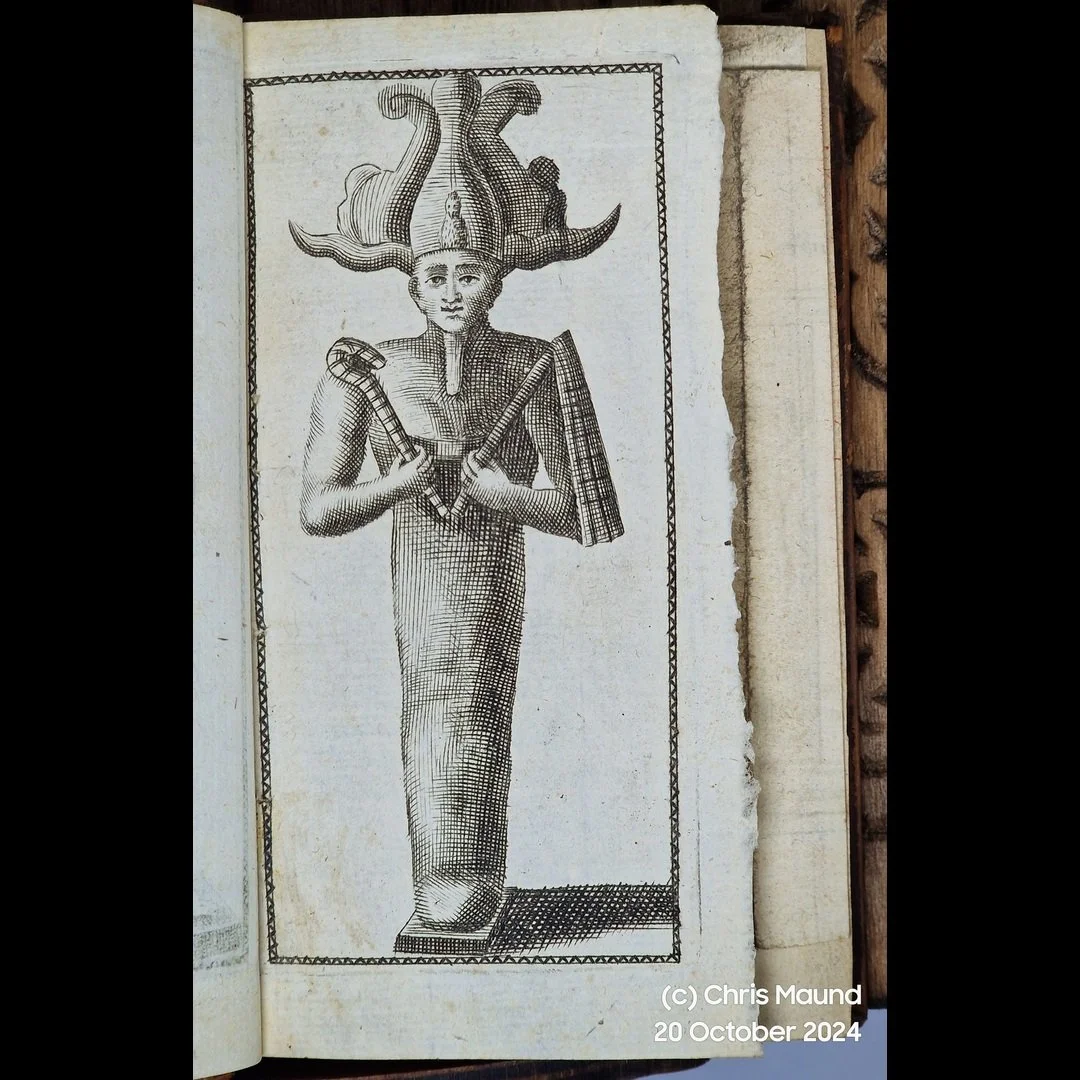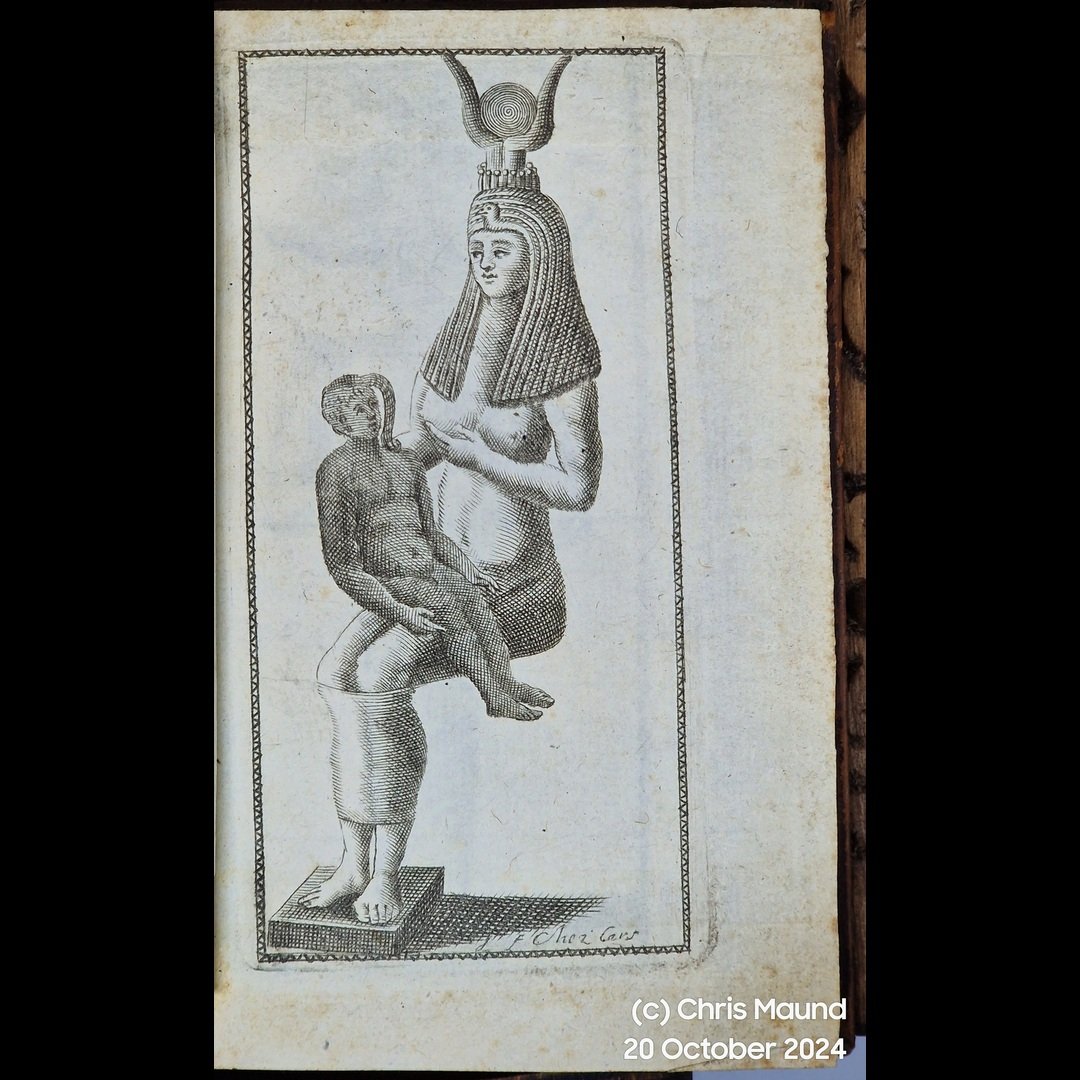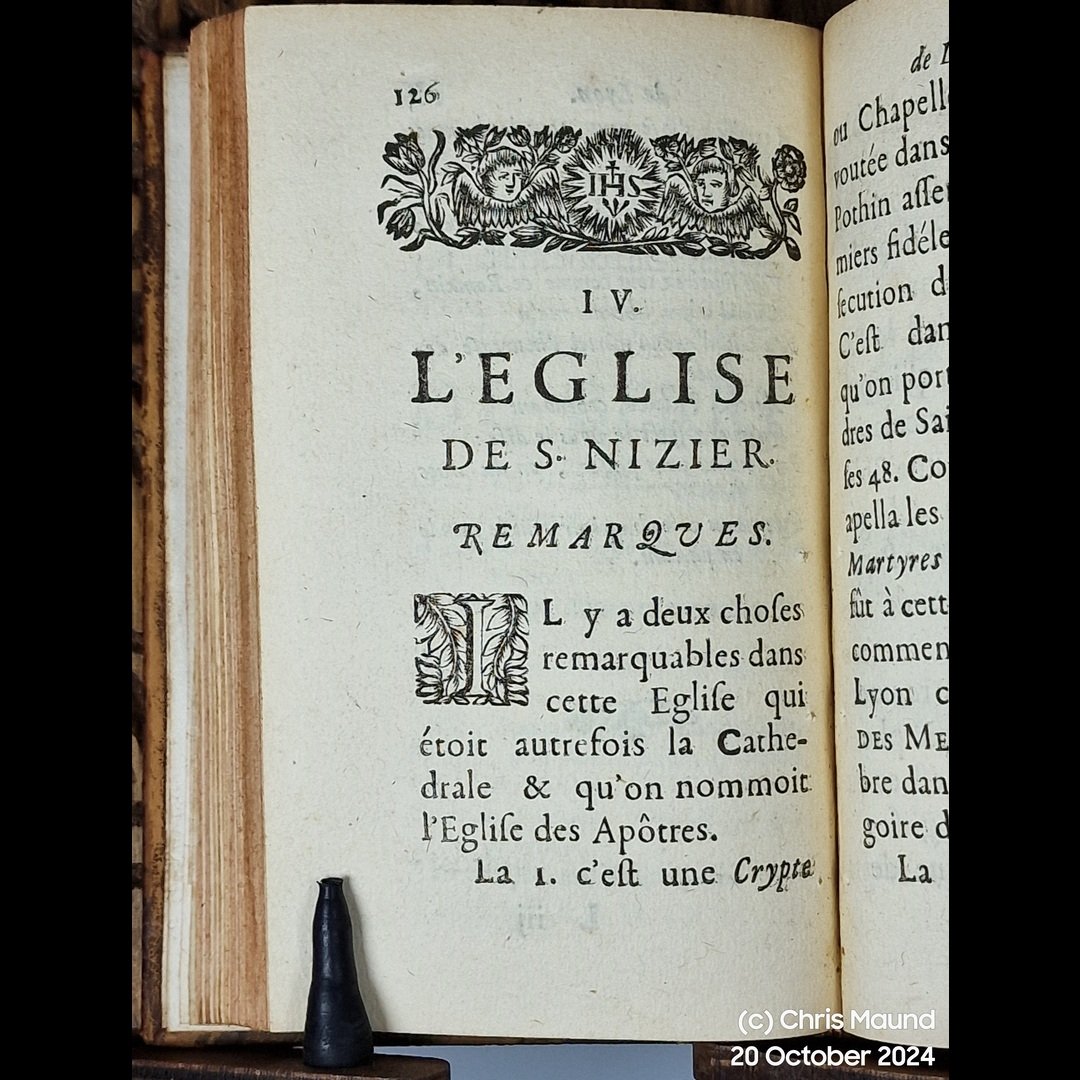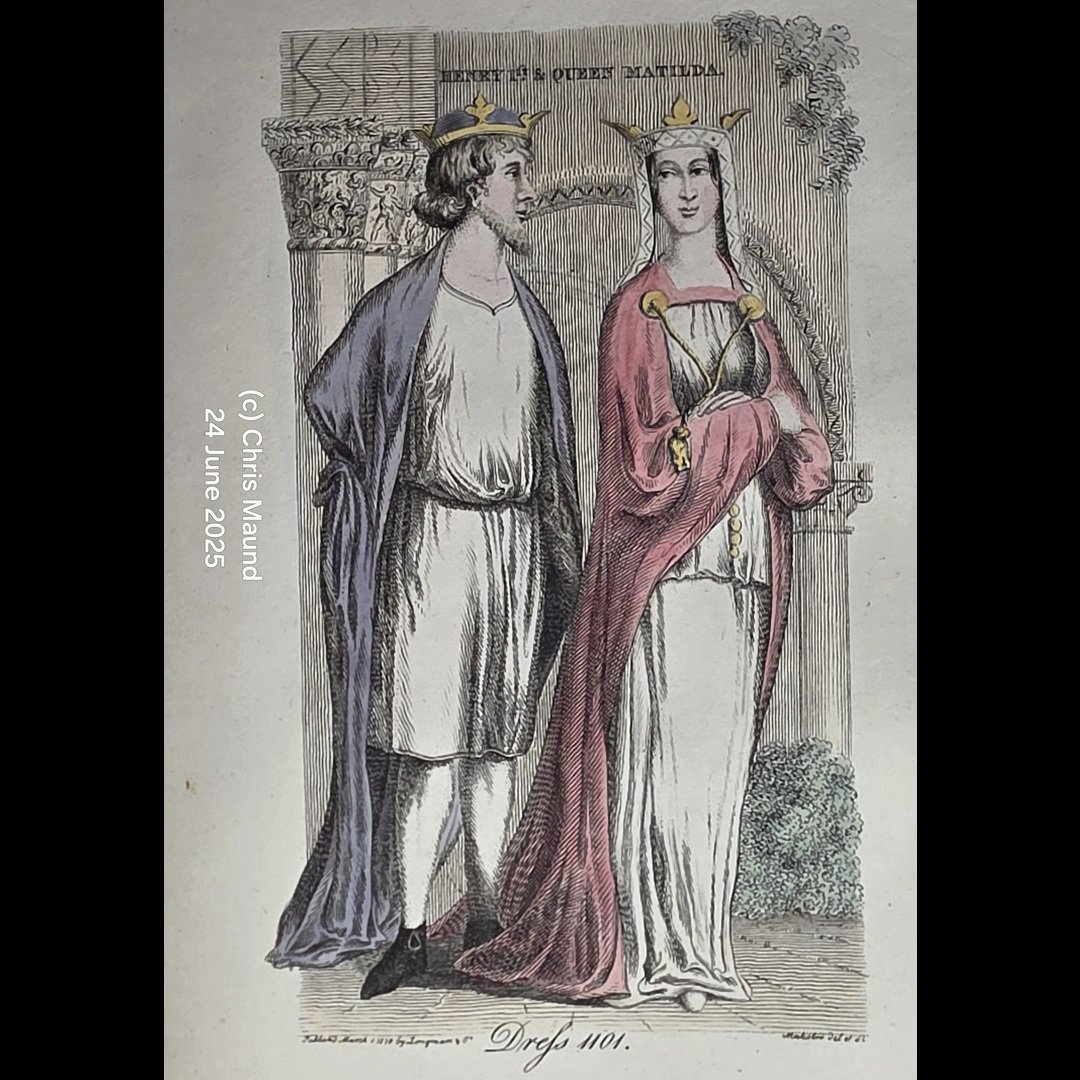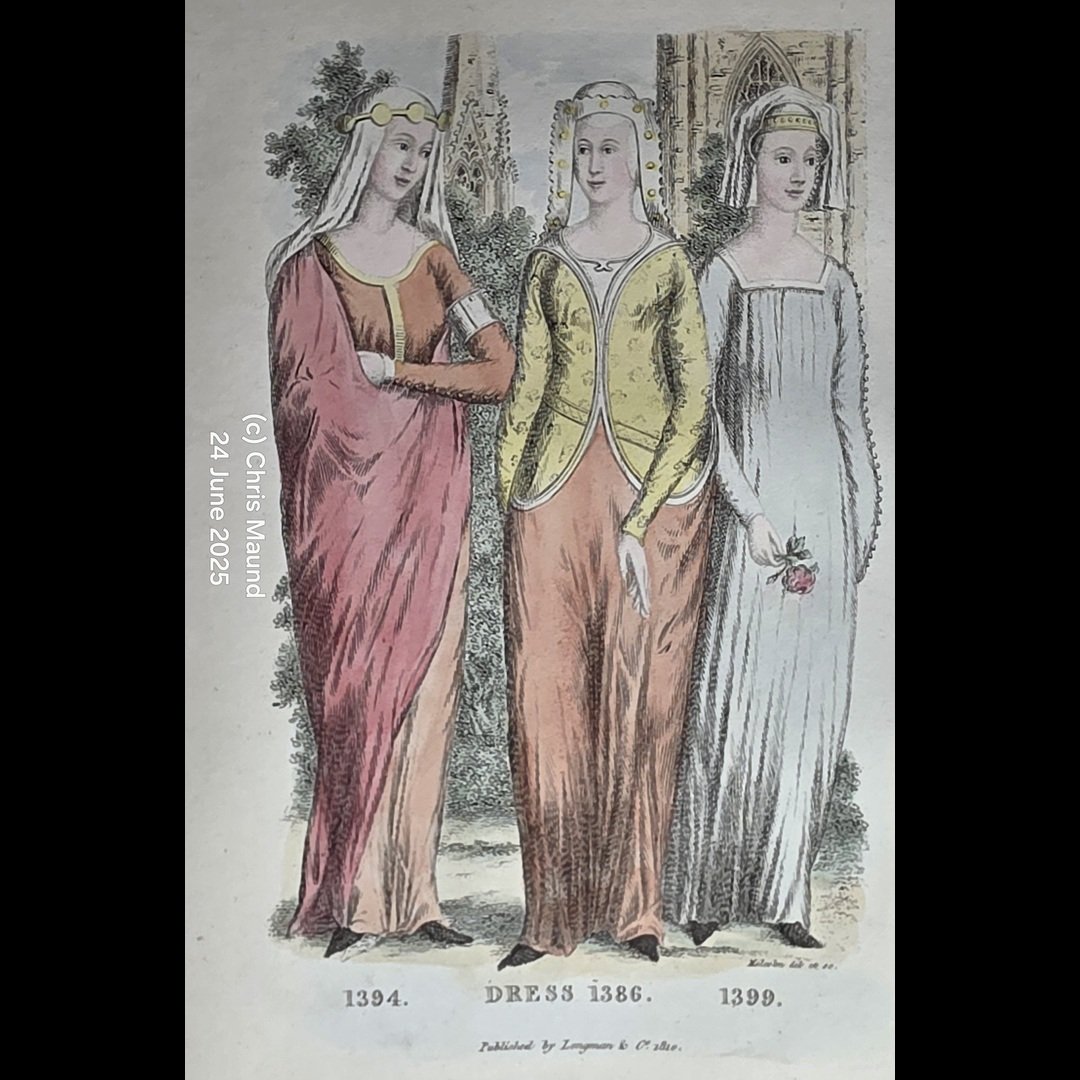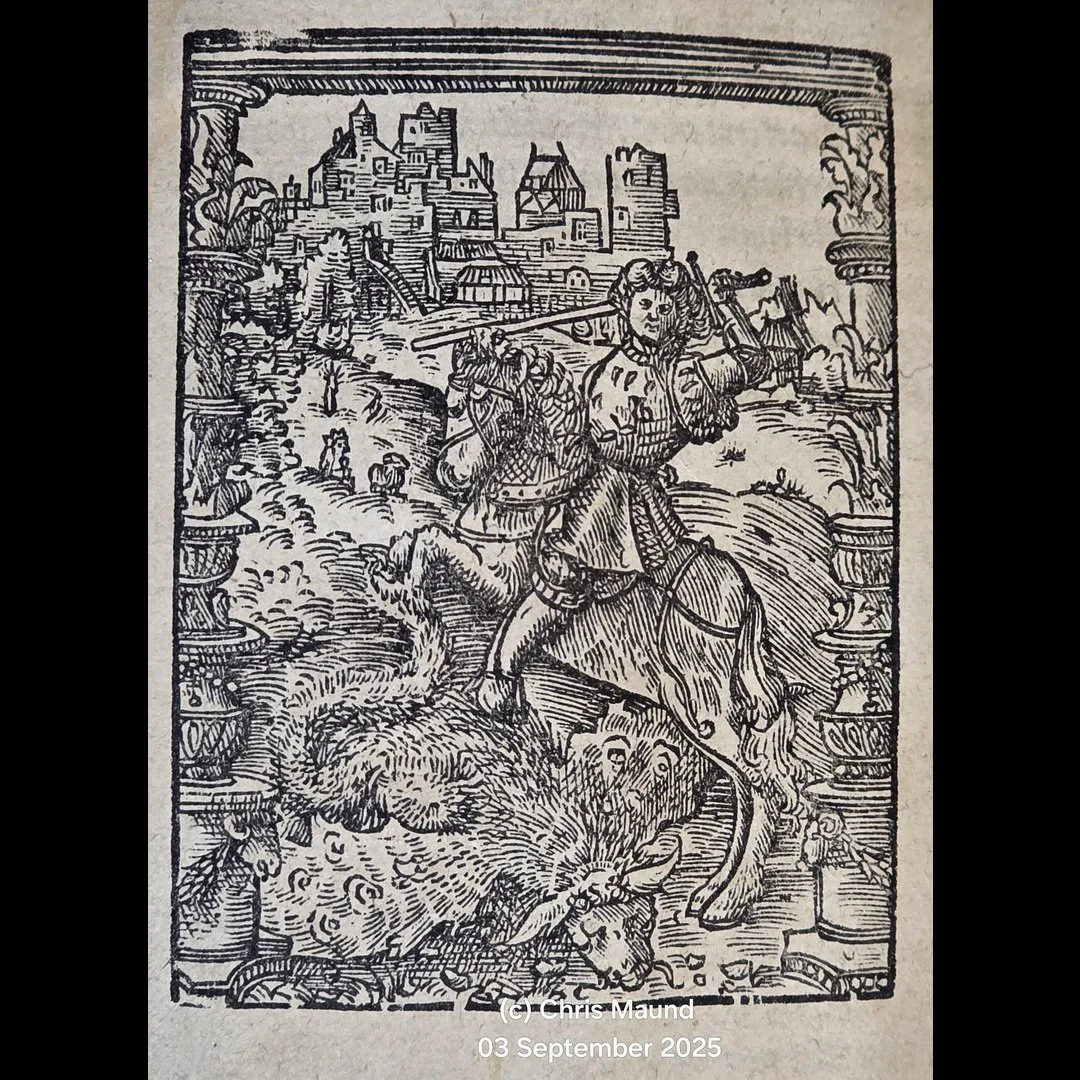 Image 1 of 19
Image 1 of 19

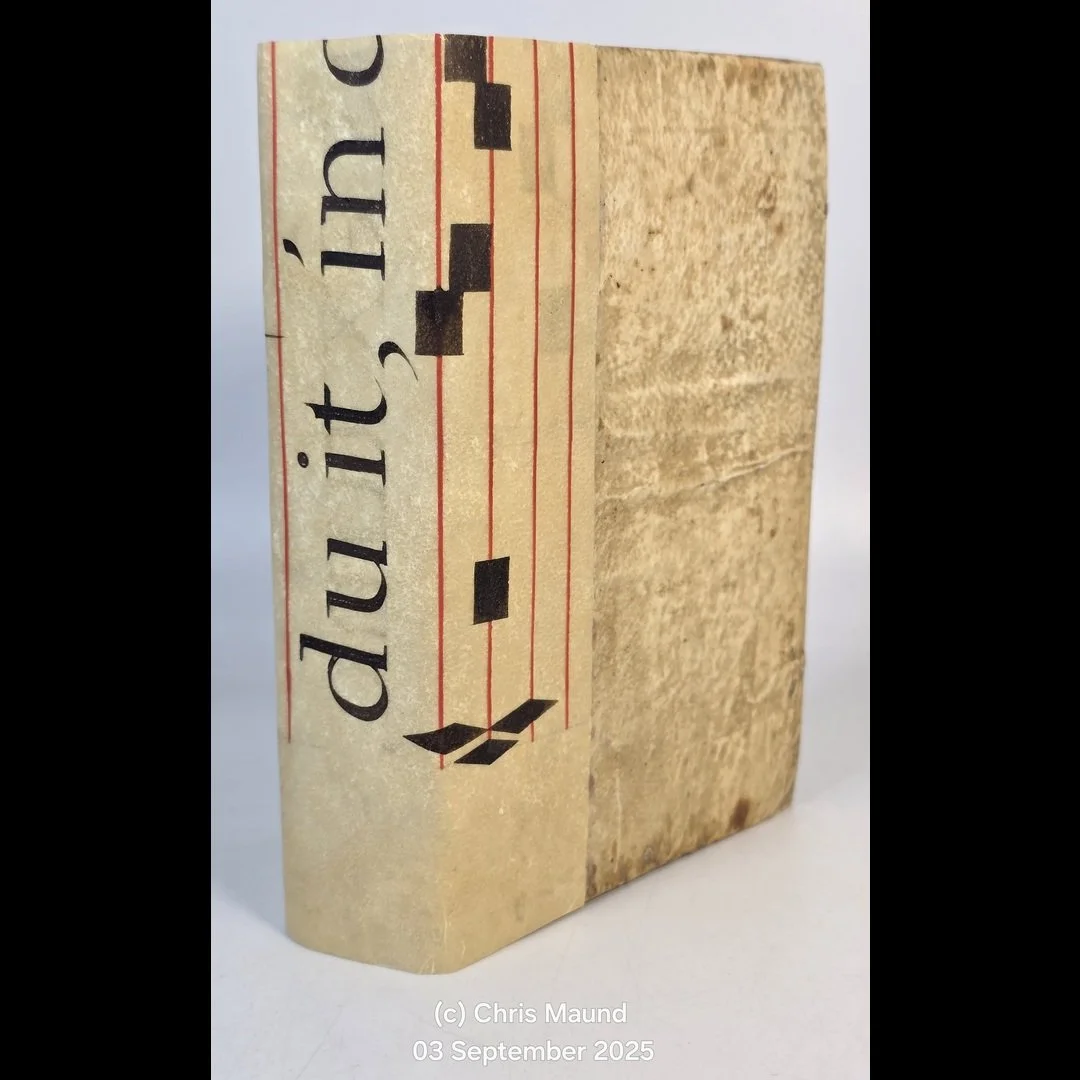 Image 2 of 19
Image 2 of 19

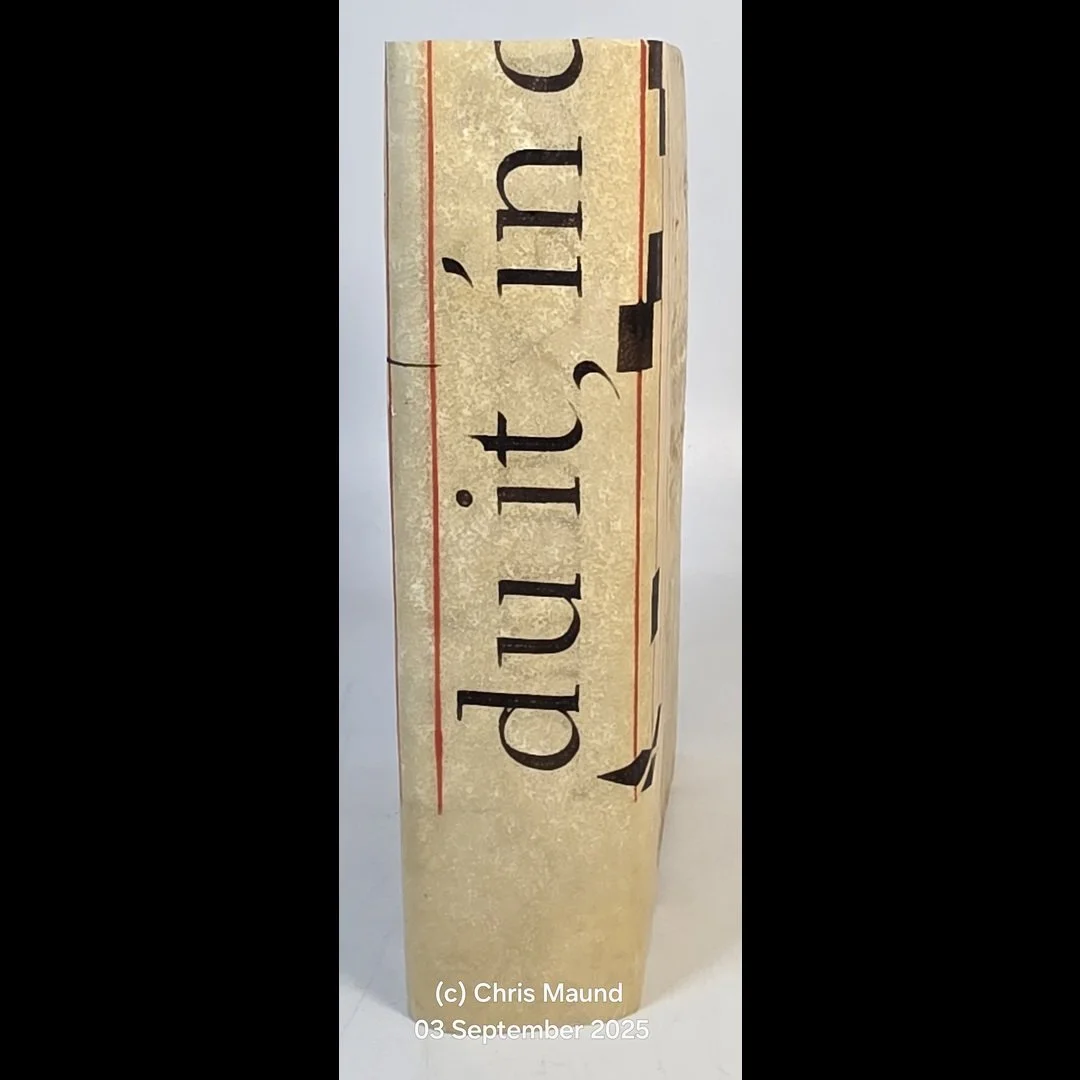 Image 3 of 19
Image 3 of 19

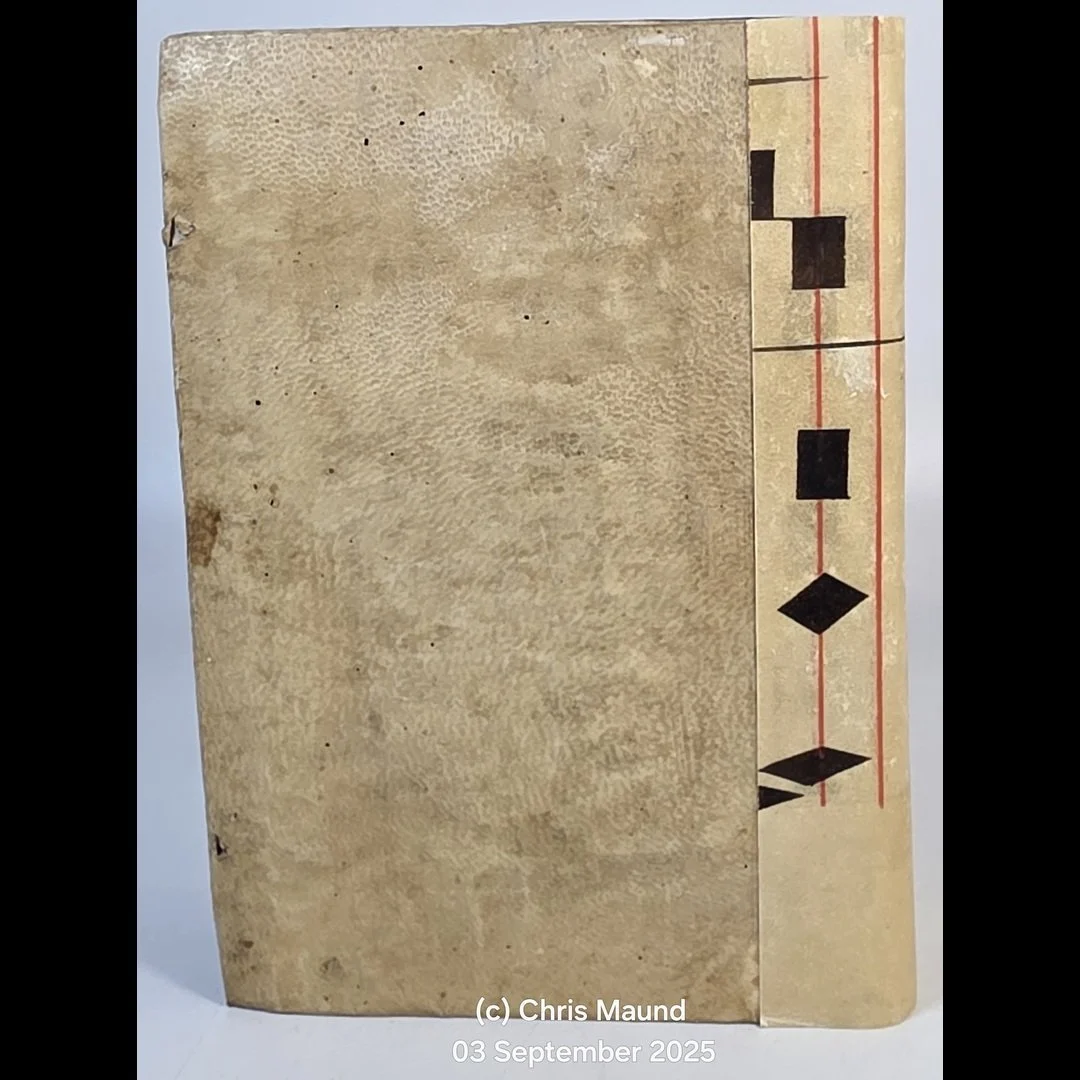 Image 4 of 19
Image 4 of 19

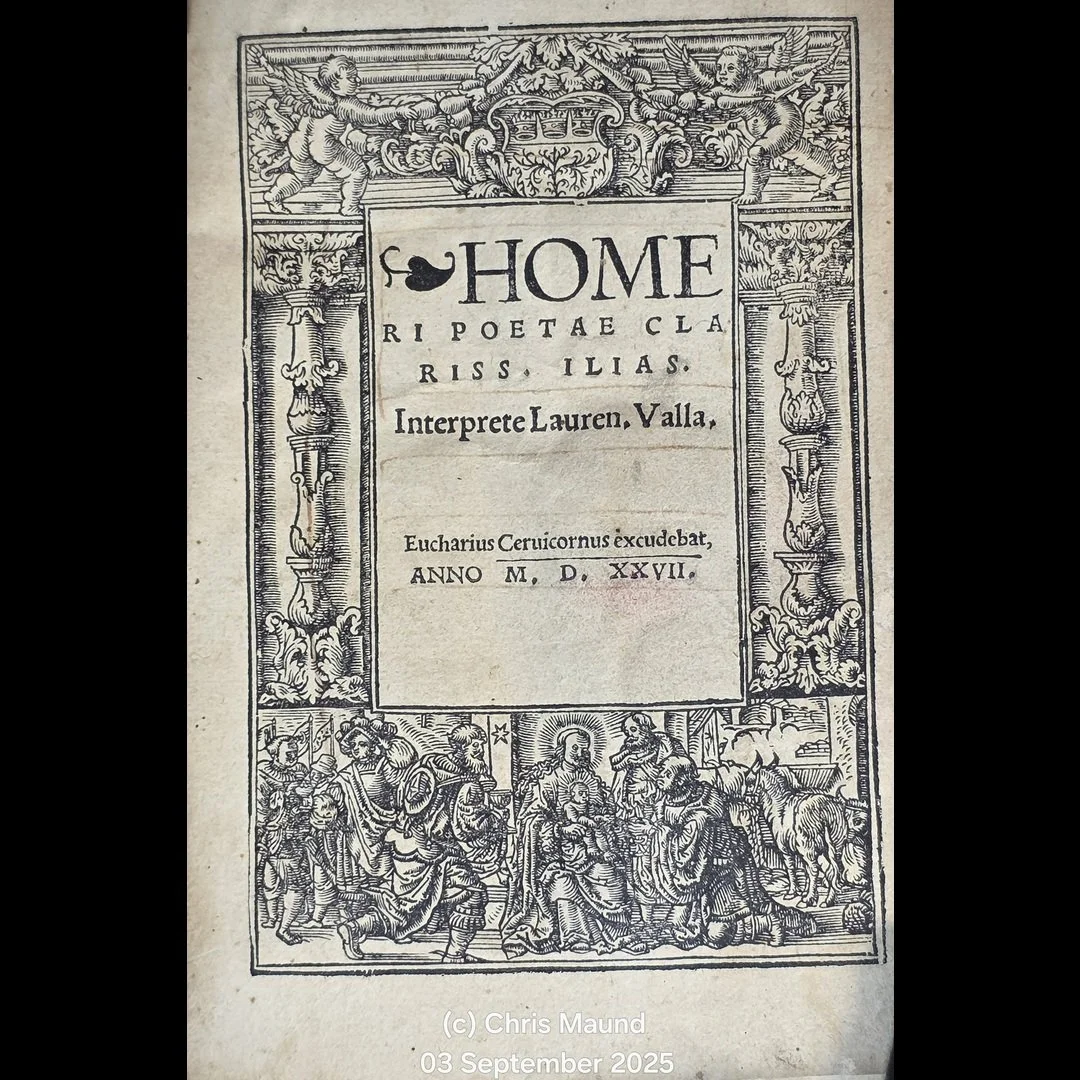 Image 5 of 19
Image 5 of 19

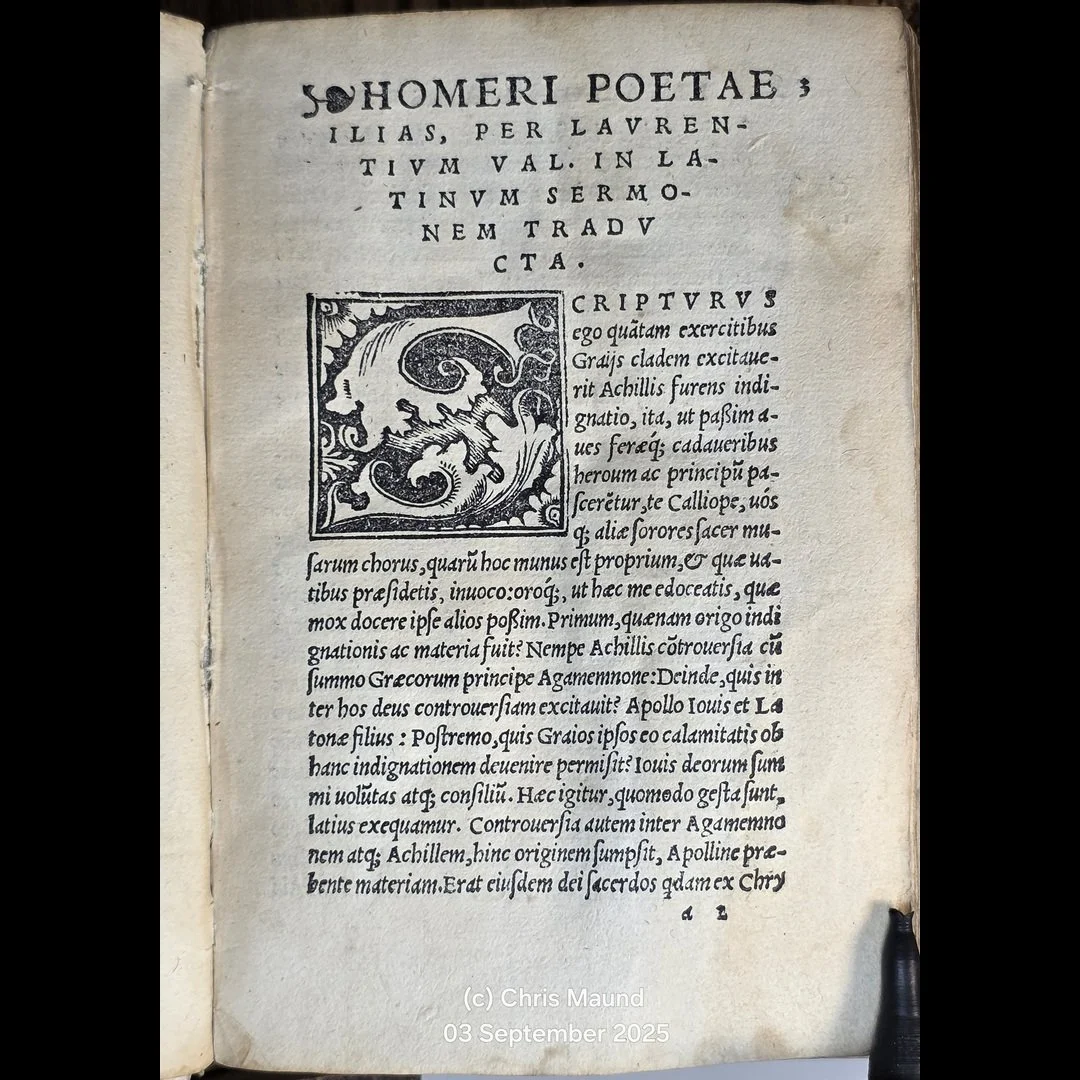 Image 6 of 19
Image 6 of 19

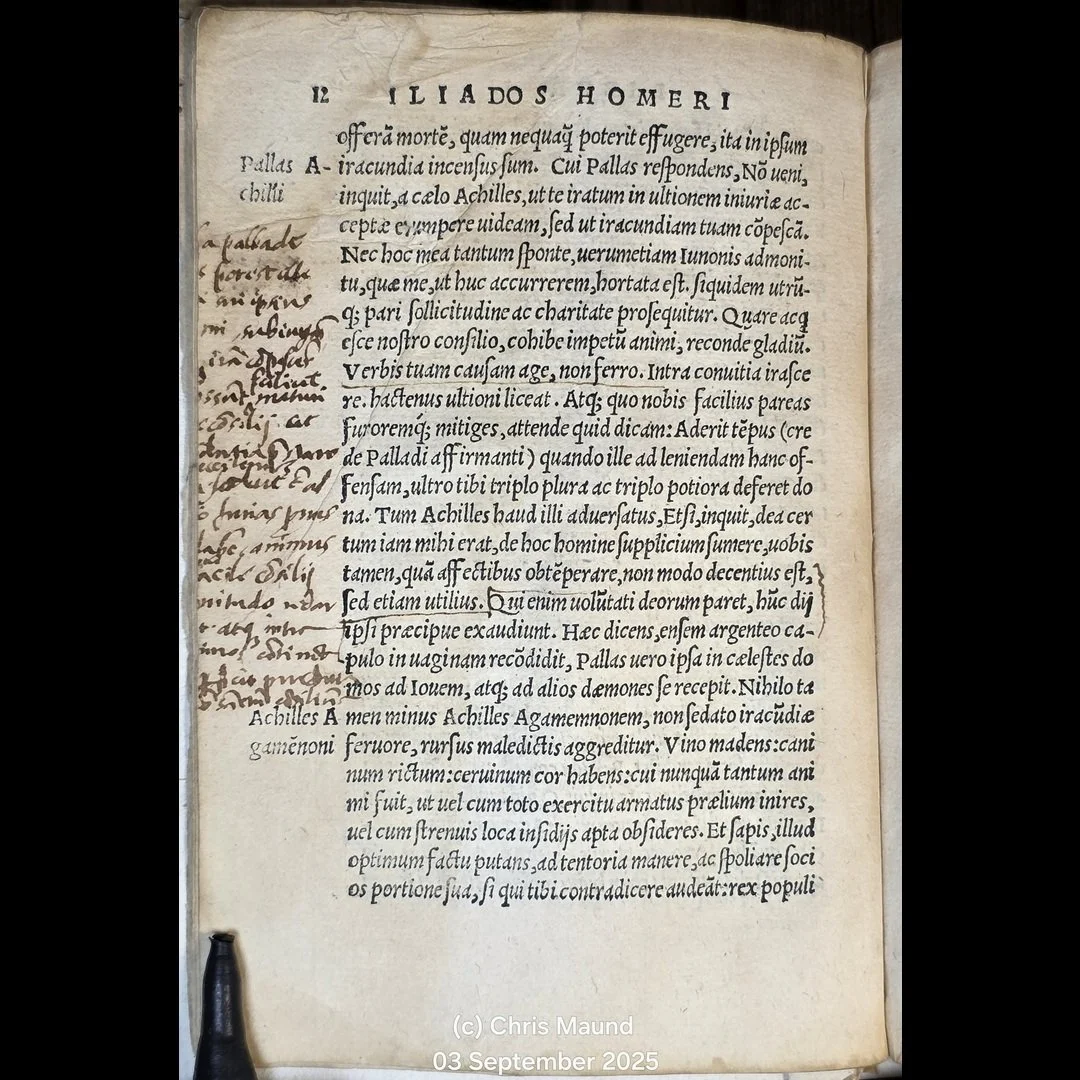 Image 7 of 19
Image 7 of 19

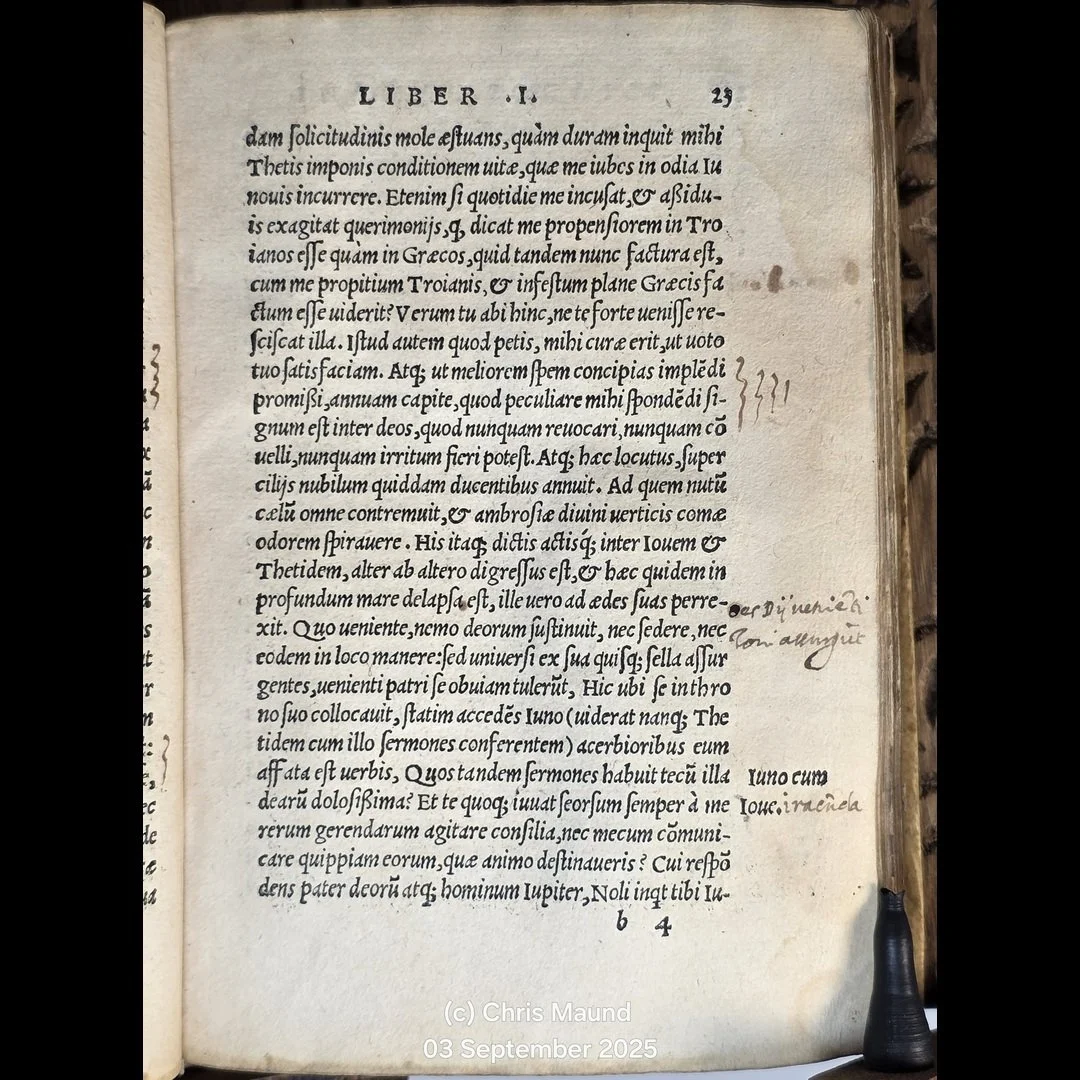 Image 8 of 19
Image 8 of 19

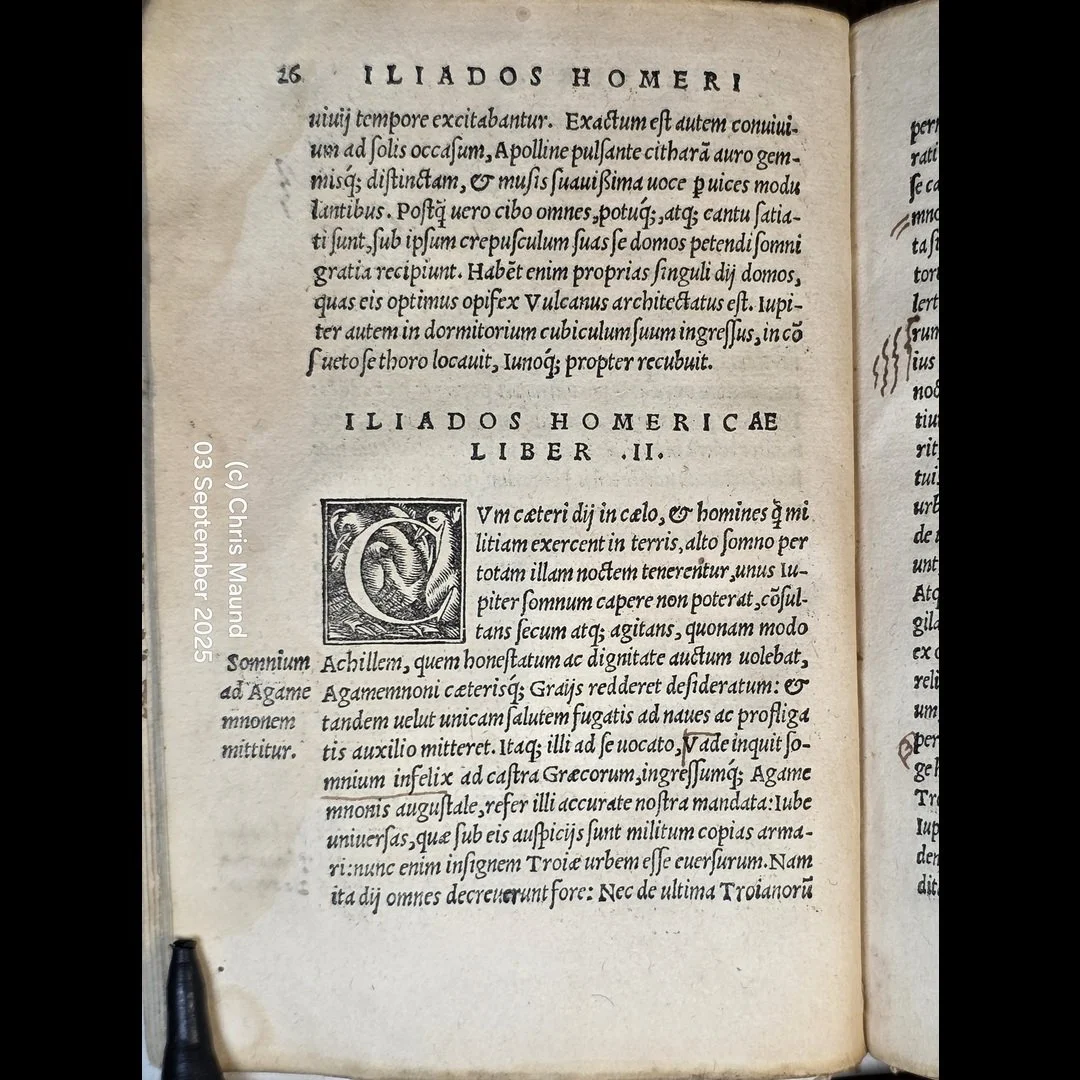 Image 9 of 19
Image 9 of 19

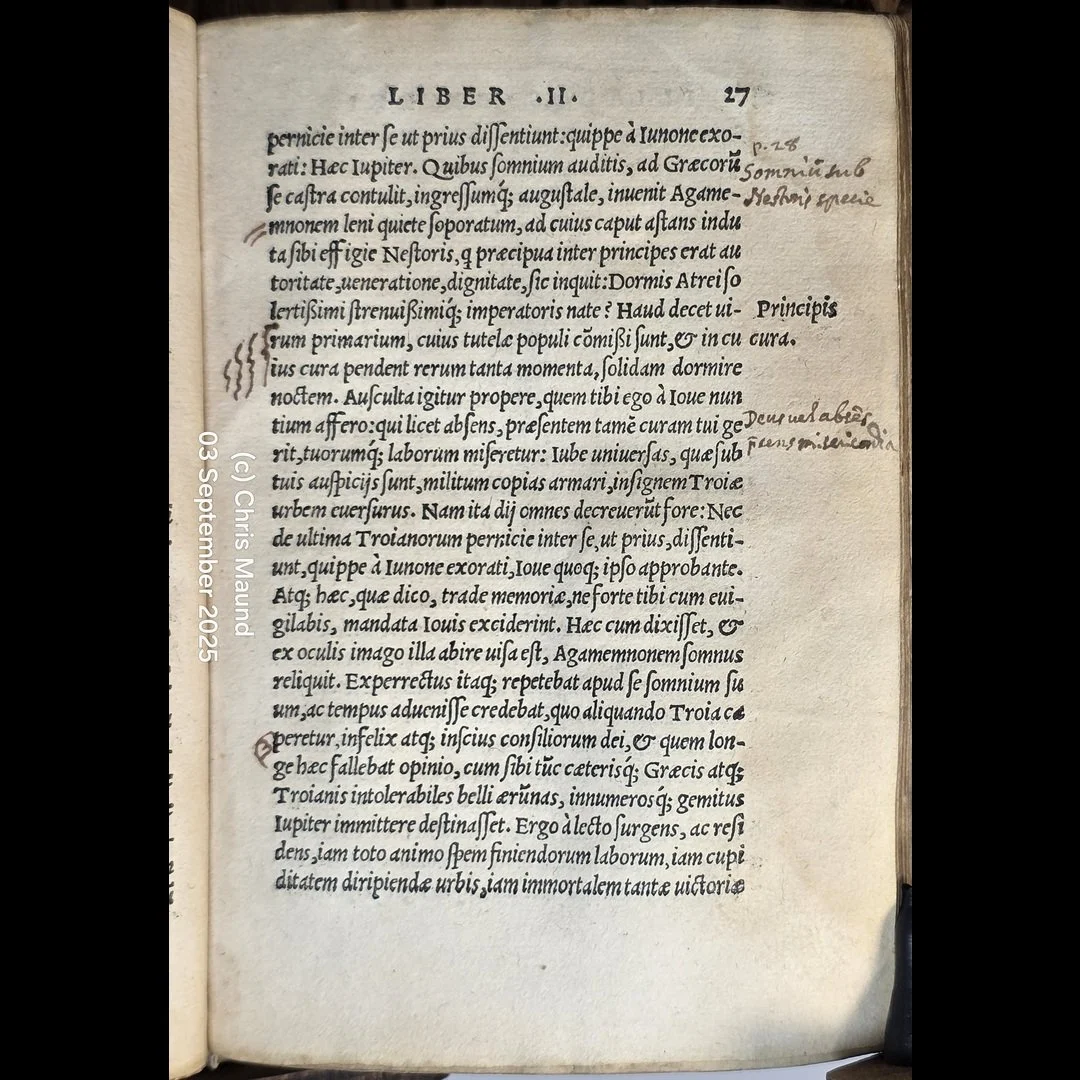 Image 10 of 19
Image 10 of 19

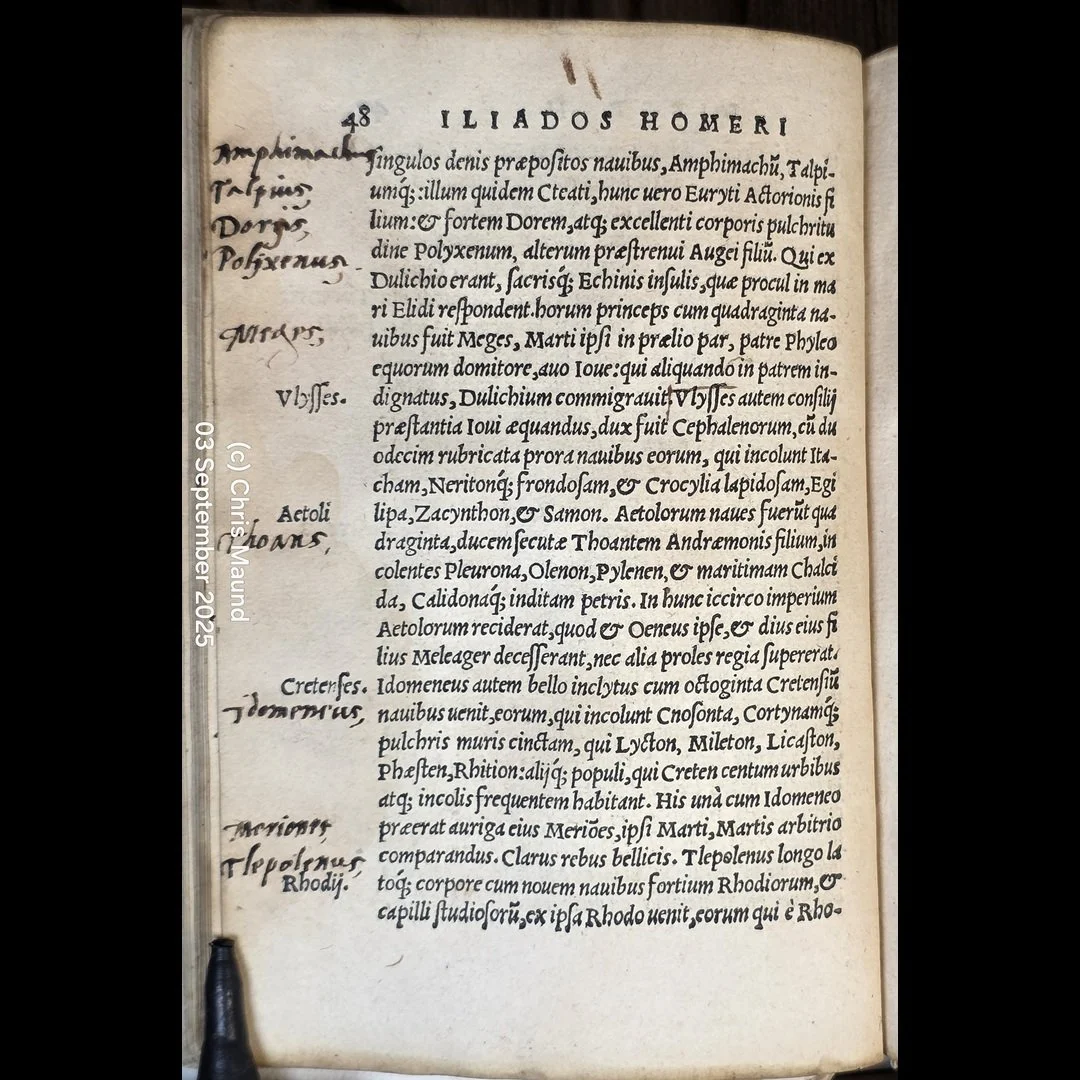 Image 11 of 19
Image 11 of 19

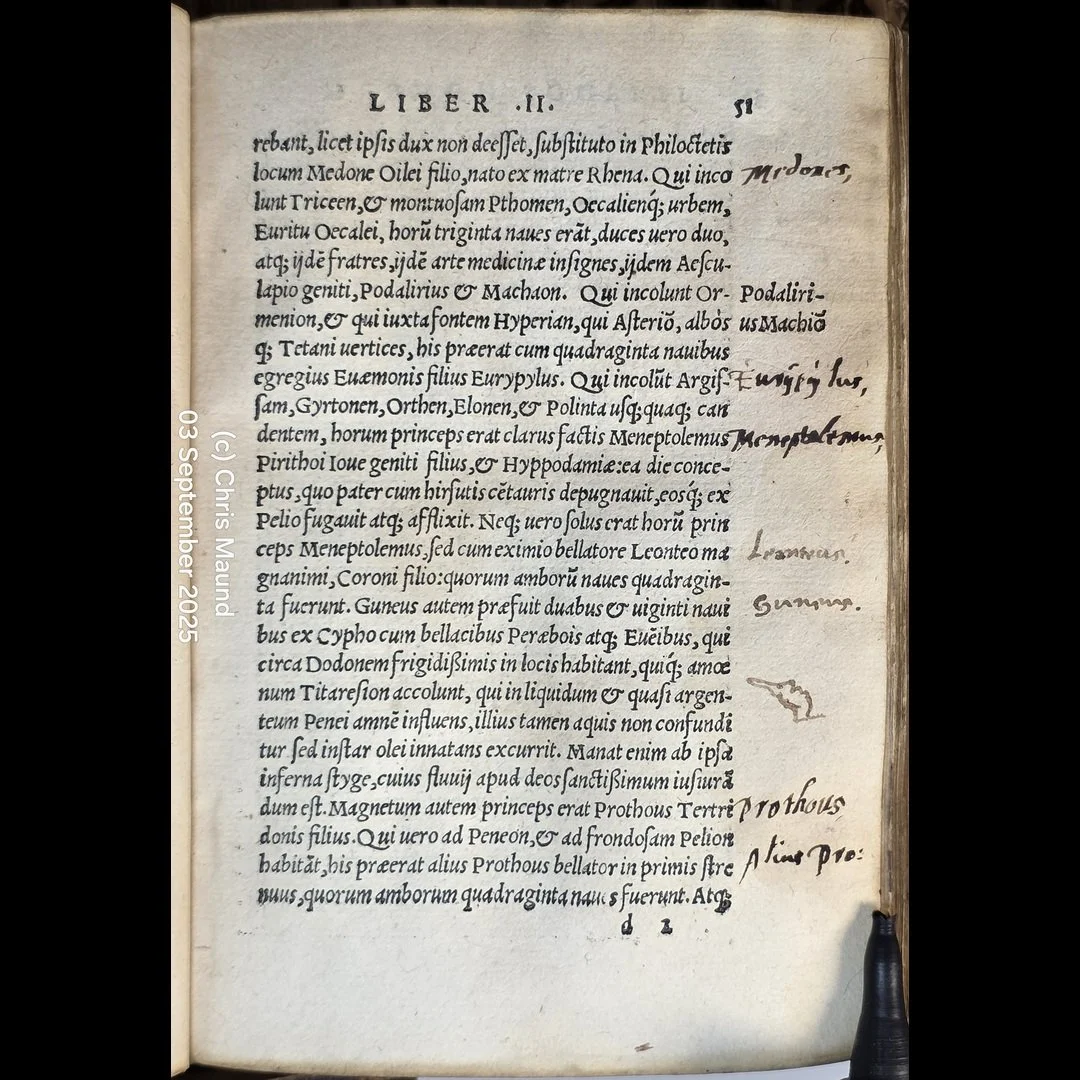 Image 12 of 19
Image 12 of 19

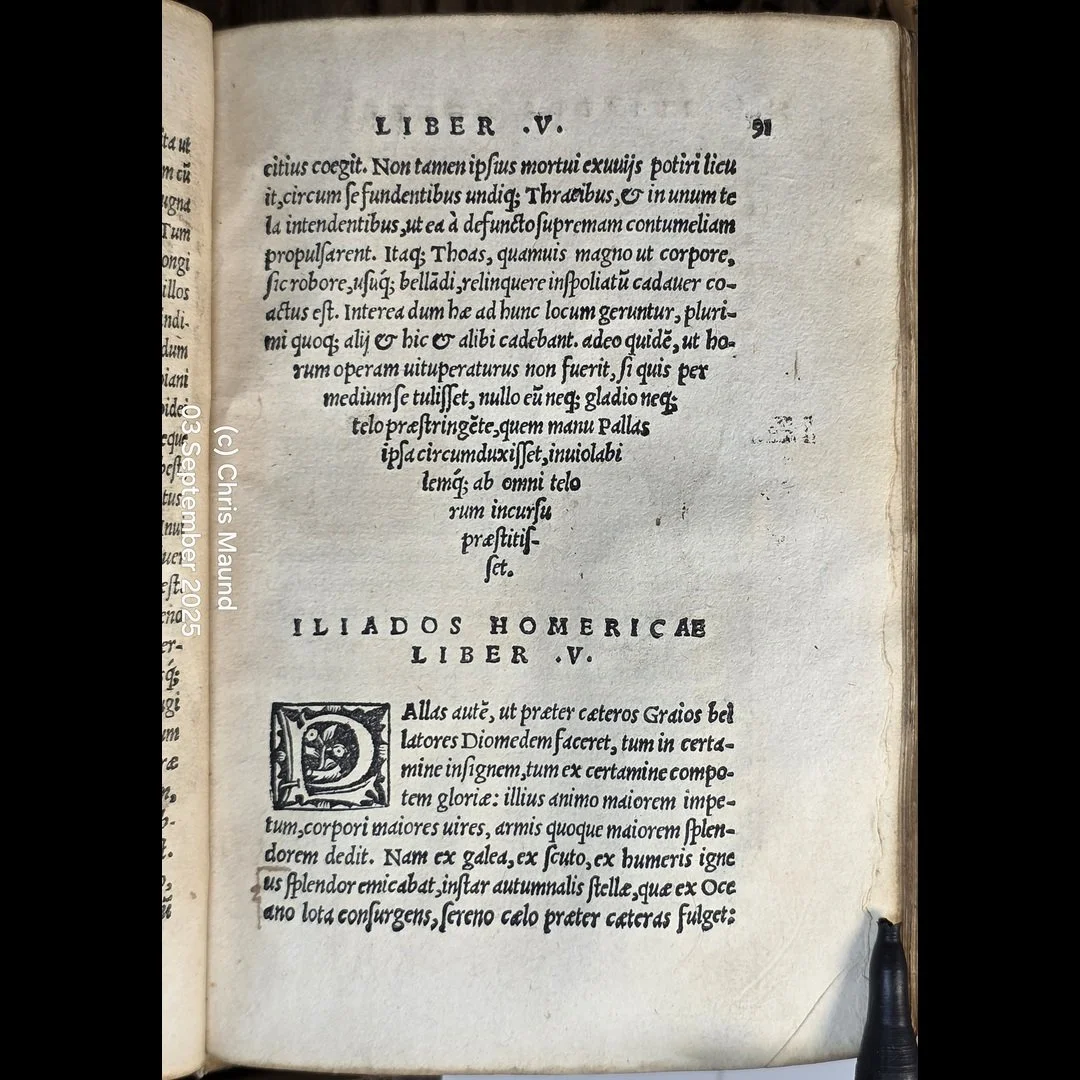 Image 13 of 19
Image 13 of 19

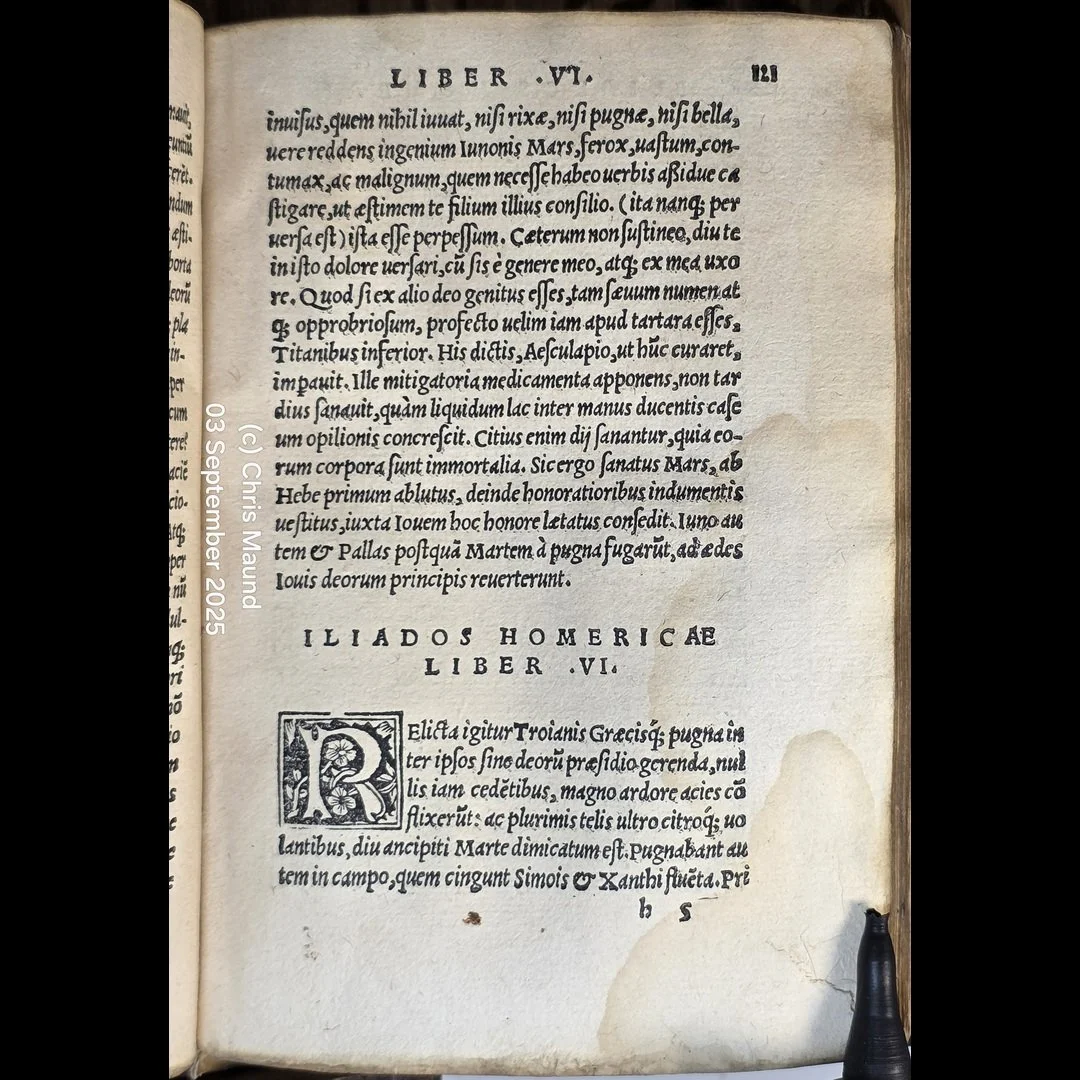 Image 14 of 19
Image 14 of 19

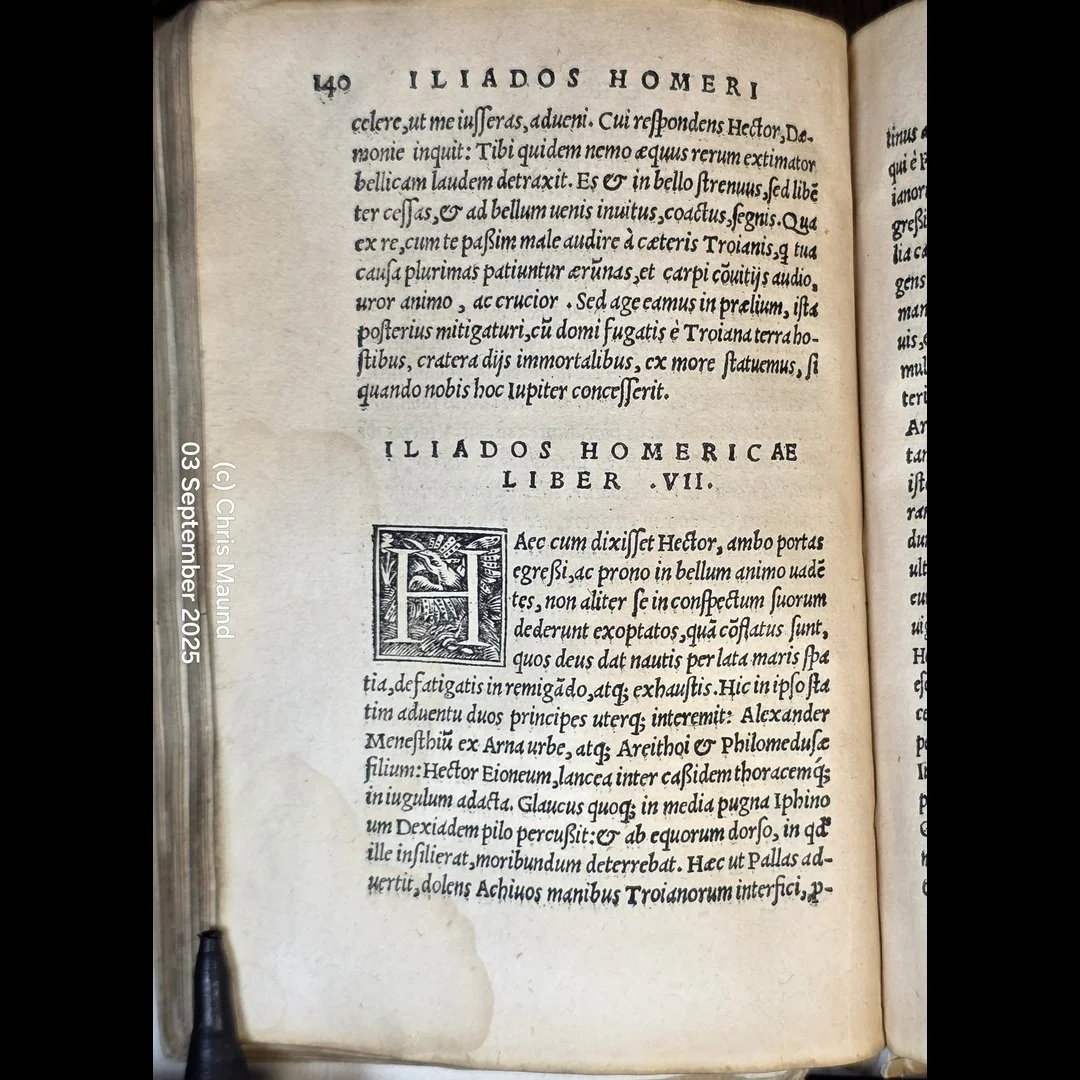 Image 15 of 19
Image 15 of 19

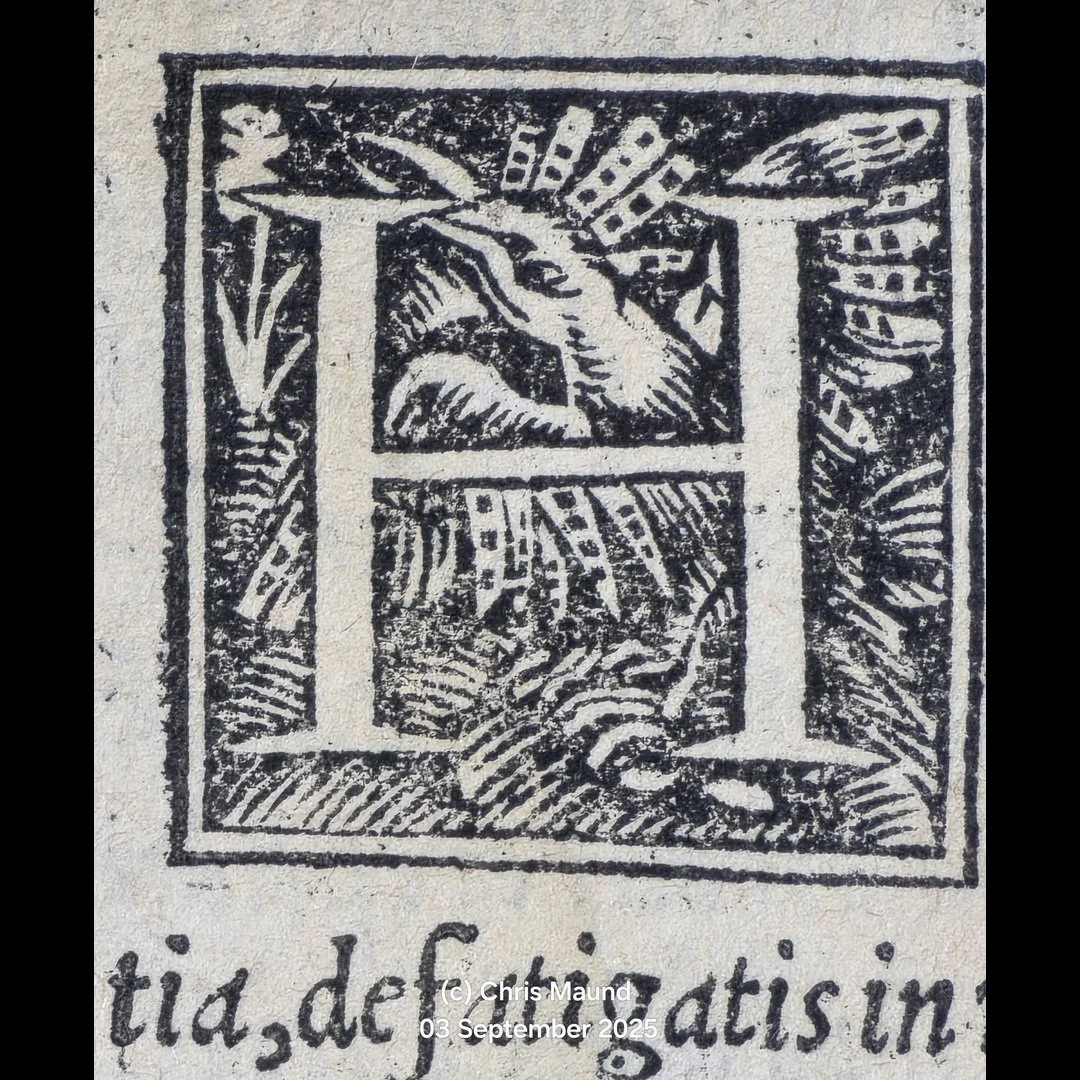 Image 16 of 19
Image 16 of 19

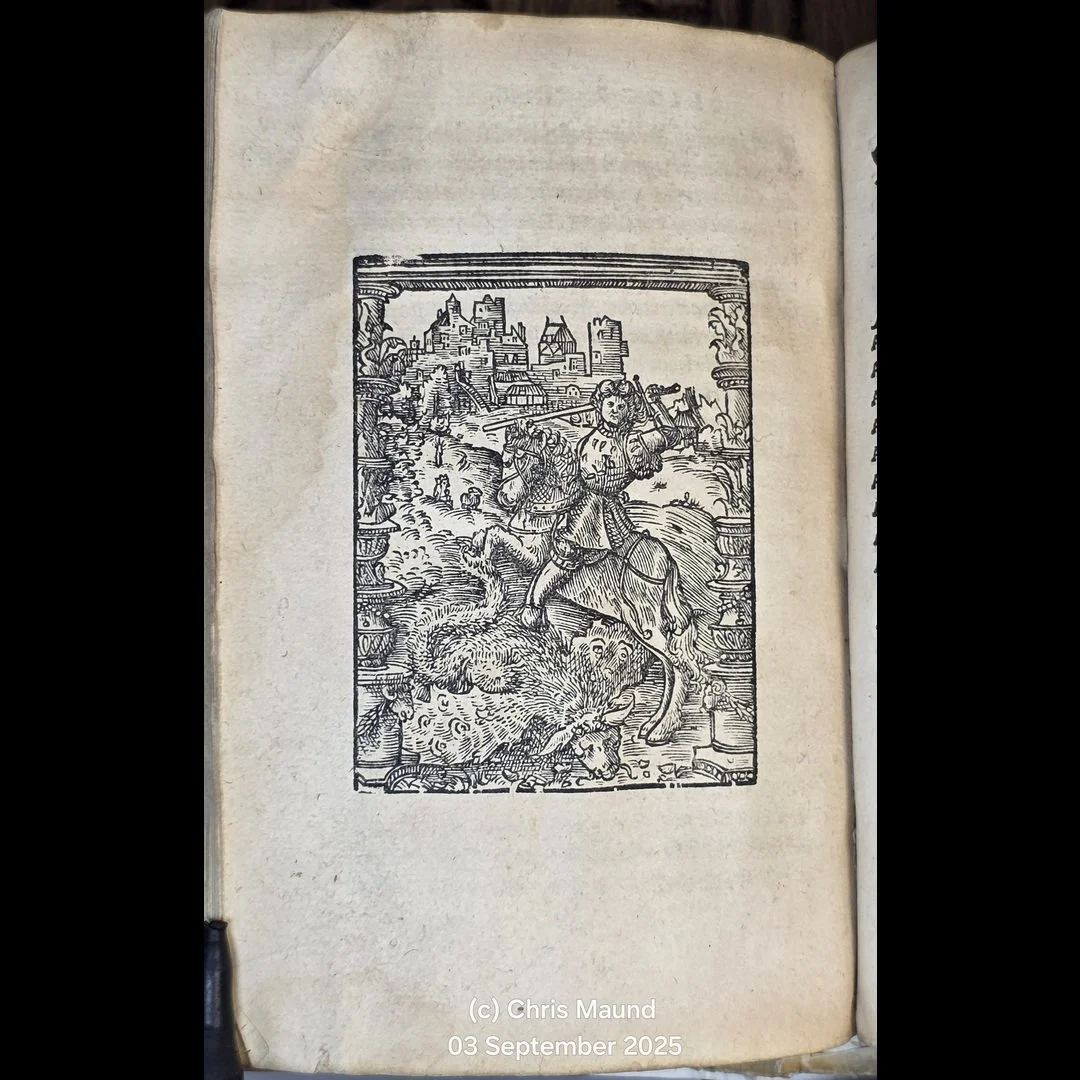 Image 17 of 19
Image 17 of 19

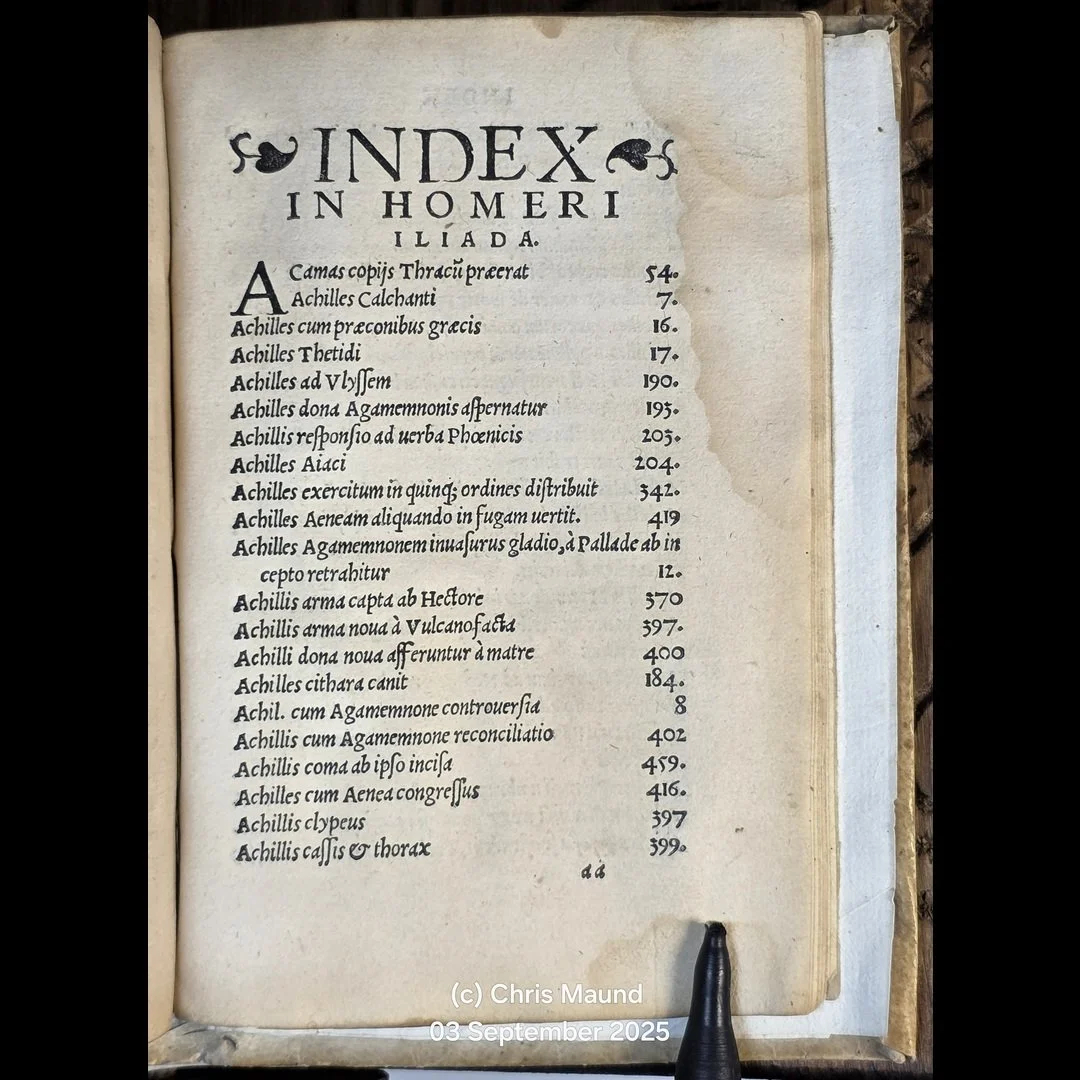 Image 18 of 19
Image 18 of 19

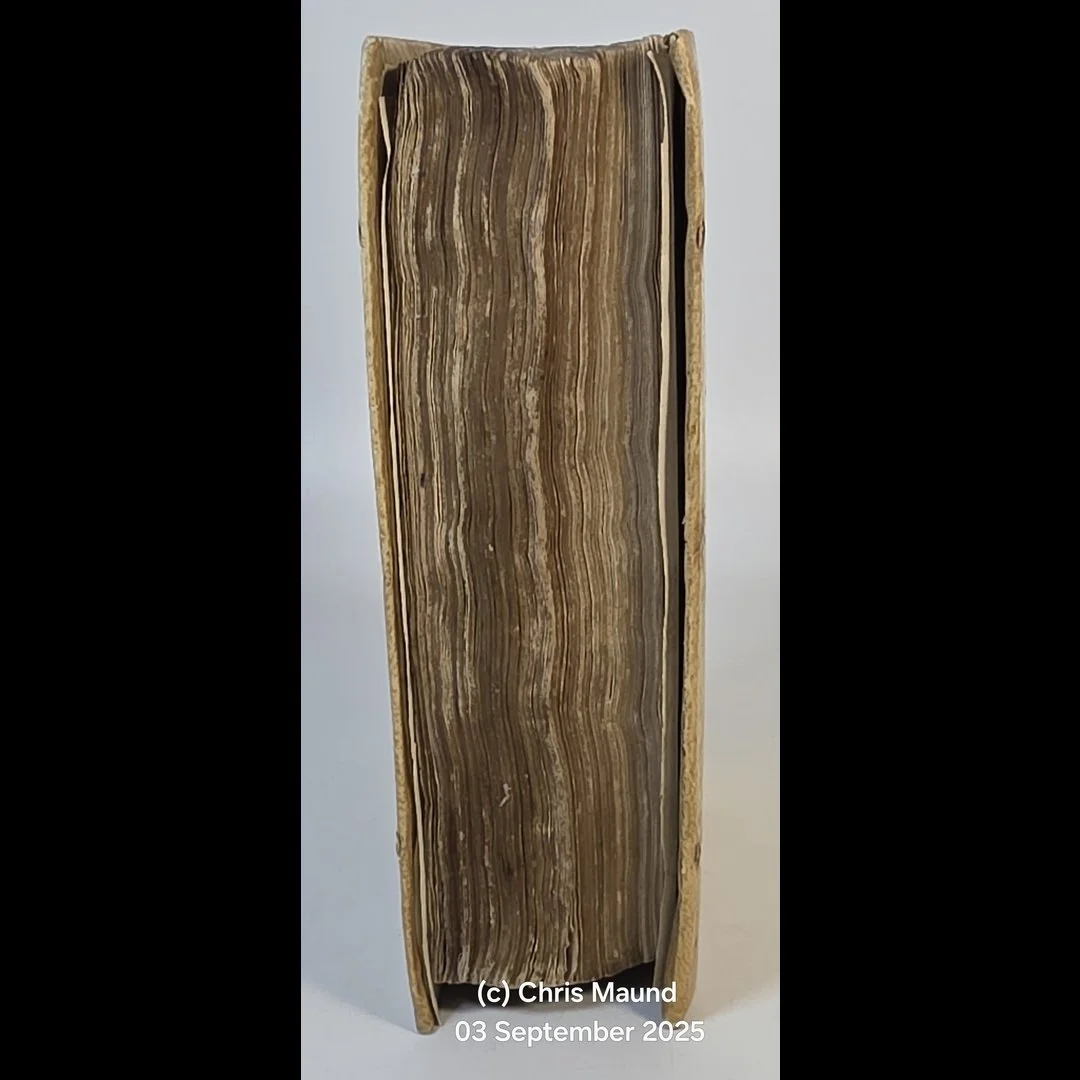 Image 19 of 19
Image 19 of 19




















1527 1st Edtn HOMERI POETAE CLARISS. ILIAS By Homer / Lauren Valla Very Good Esoteric
1527 1st Edition ,
HOMERI POETAE CLARISS. ILIAS
Interpreted by Lauren Valla
By Homer / Lauren Valla
Lorenzo Valla was born in Rome in 1407 and died in 1457. Philologist, humanist, author of Elegantiae linguae latinae, he was famous for demonstrating the falsehood of the Donation of Constantine. Professor in Pavia and Rome, he worked at the court of Alfonso d'Aragona and was among the leading promoters of classical Latin as a tool for historical, moral, and theological investigation.
Illustrated By:
Format: Vellum,
Language: Latin
Dust Jacket: No Jacket, Dust Jacket Condition: No Jacket
Published By: Eucharius Cervicornus, Cologne
sextodecimo or sixteenmo (16mo 4 × 6+3⁄4 102 × 171),Pages 527
ISBN:
The oldest epic of the West in the powerful Latin version by Lorenzo Valla, printed in Cologne in 1527 by Eucharius Cervicornus. Beautiful full-page woodcut of Achilles on horseback with his sword drawn.
This Latin edition of the Iliad represents a cultural bridge between classicism and Renaissance humanism. The translation is by Lorenzo Valla (1407–1457), a renowned humanist and philologist, known for his linguistic rigor and critical analysis of ancient texts. Valla re-translates the Homeric epic not only as a philological exercise but also as a moral and political restitution of ancient Greek knowledge through a Christian perspective. Printed by Eucharius Cervicornus, a typographer active in Cologne among the most refined of the early 16th century, the work fits into the passionate editorial humanist movement of the Holy Roman Empire.
Despite the faltering knowledge of Greek in the early Middle Ages, stories of the battle of Troy and the wanderings of Odysseus never lost their appeal in the European imagination. Christian intellectuals read and reread these tales in late antique Latin paraphrases that communicated most of the content but little of the poetic virtuosity of Homer's Iliad and Odyssey. Some, like the Ilias latina, which condensed Homer's poem into 1070 lines of Latin hexameter, were crude distillations of long familiar stories. Others, like the 'Ephemeris belli Troiani' of Dictys Cretensis and the 'Historia de excidio Troiae' of Dares Phrygius, were presented as Latin translations of lost Greek accounts of the fall of Troy allegedly composed by individuals who had taken part in the battle. In the absence of the Greek originals, these Latin texts mediated the tale of Troy's fall to medieval readers for almost a millenium. It was only in the 14th century that early humanists sought out Homer's poems in Greek and rendered them into Latin for a learned audience eager to devour the poet's words, even if they were mediated in another language. By the end of the 15th century, 17 Latin translations of the works of Homer had appeared. (G.S. Scott's review of B. Schneider and Chr. Meckelnborg, 'Odyssea Homeri a Francisco Griffolino Aretino in Latinum translata' in 'The Medieval Review' of 13-03-06) The most influential one was the prose translation of The Italian humanist Lorenzo Valla, latinized as Laurentius Valla, 1407-1457, famous student of the humanist scholar Giovanni Aurispa, promoter of the revival of Greek studies in Renaissance Italy. In 1450 Valla was appointed professor of Rhetoric in Rome. He is one of the founders of historical criticism. On the basis of textual analysis he proved that the so-called 'Donation of Constantine' in the decree of Gratian, was a forgery, being an interpolated passage. 'In the domain of pure scholarship Valla's reputation mainly rests on his widely diffused work 'On the Elegancies of the Latin language', the result of many years of labour. He here attacks the barbarous Latin of the Middle Ages and of his own times.' (Sandys, 2,68) As a Greek scholar Valla translated Thucydides, Herodotus, and the 'De Corona' of Demosthenes. In the service of the king of Naples he translated between 1442 and 1444 the first 16 books of the Ilias of Homer. This translation, left incomplete, was completed by Valla's pupil Francesco Griffolini sometime before 1461, and was first published in 1474.
SKU: BTETM0002649
Approximate Package Dimensions H: 12.5, L: 30, W: 25 (Units: cm), W: 2Kg
1527 1st Edition ,
HOMERI POETAE CLARISS. ILIAS
Interpreted by Lauren Valla
By Homer / Lauren Valla
Lorenzo Valla was born in Rome in 1407 and died in 1457. Philologist, humanist, author of Elegantiae linguae latinae, he was famous for demonstrating the falsehood of the Donation of Constantine. Professor in Pavia and Rome, he worked at the court of Alfonso d'Aragona and was among the leading promoters of classical Latin as a tool for historical, moral, and theological investigation.
Illustrated By:
Format: Vellum,
Language: Latin
Dust Jacket: No Jacket, Dust Jacket Condition: No Jacket
Published By: Eucharius Cervicornus, Cologne
sextodecimo or sixteenmo (16mo 4 × 6+3⁄4 102 × 171),Pages 527
ISBN:
The oldest epic of the West in the powerful Latin version by Lorenzo Valla, printed in Cologne in 1527 by Eucharius Cervicornus. Beautiful full-page woodcut of Achilles on horseback with his sword drawn.
This Latin edition of the Iliad represents a cultural bridge between classicism and Renaissance humanism. The translation is by Lorenzo Valla (1407–1457), a renowned humanist and philologist, known for his linguistic rigor and critical analysis of ancient texts. Valla re-translates the Homeric epic not only as a philological exercise but also as a moral and political restitution of ancient Greek knowledge through a Christian perspective. Printed by Eucharius Cervicornus, a typographer active in Cologne among the most refined of the early 16th century, the work fits into the passionate editorial humanist movement of the Holy Roman Empire.
Despite the faltering knowledge of Greek in the early Middle Ages, stories of the battle of Troy and the wanderings of Odysseus never lost their appeal in the European imagination. Christian intellectuals read and reread these tales in late antique Latin paraphrases that communicated most of the content but little of the poetic virtuosity of Homer's Iliad and Odyssey. Some, like the Ilias latina, which condensed Homer's poem into 1070 lines of Latin hexameter, were crude distillations of long familiar stories. Others, like the 'Ephemeris belli Troiani' of Dictys Cretensis and the 'Historia de excidio Troiae' of Dares Phrygius, were presented as Latin translations of lost Greek accounts of the fall of Troy allegedly composed by individuals who had taken part in the battle. In the absence of the Greek originals, these Latin texts mediated the tale of Troy's fall to medieval readers for almost a millenium. It was only in the 14th century that early humanists sought out Homer's poems in Greek and rendered them into Latin for a learned audience eager to devour the poet's words, even if they were mediated in another language. By the end of the 15th century, 17 Latin translations of the works of Homer had appeared. (G.S. Scott's review of B. Schneider and Chr. Meckelnborg, 'Odyssea Homeri a Francisco Griffolino Aretino in Latinum translata' in 'The Medieval Review' of 13-03-06) The most influential one was the prose translation of The Italian humanist Lorenzo Valla, latinized as Laurentius Valla, 1407-1457, famous student of the humanist scholar Giovanni Aurispa, promoter of the revival of Greek studies in Renaissance Italy. In 1450 Valla was appointed professor of Rhetoric in Rome. He is one of the founders of historical criticism. On the basis of textual analysis he proved that the so-called 'Donation of Constantine' in the decree of Gratian, was a forgery, being an interpolated passage. 'In the domain of pure scholarship Valla's reputation mainly rests on his widely diffused work 'On the Elegancies of the Latin language', the result of many years of labour. He here attacks the barbarous Latin of the Middle Ages and of his own times.' (Sandys, 2,68) As a Greek scholar Valla translated Thucydides, Herodotus, and the 'De Corona' of Demosthenes. In the service of the king of Naples he translated between 1442 and 1444 the first 16 books of the Ilias of Homer. This translation, left incomplete, was completed by Valla's pupil Francesco Griffolini sometime before 1461, and was first published in 1474.
SKU: BTETM0002649
Approximate Package Dimensions H: 12.5, L: 30, W: 25 (Units: cm), W: 2Kg
Very Good - Same-age binding in full reuse parchment, rebacked with parchment from an ancient antifonal. The frontispiece is woodcut, and the end has a woodcut of Achilles on horseback with a drawn sword. There are tears, stains, browning, and other signs of aging but the work is genuine. Pages: 495, [32], 1 woodcut at the end. (Ref: VD16 H 4663; Hoffmann 2,334; Not in Brunet, Graesse, Ebert & Moss)
Title with woodcut borders, depicting in the lower part the adoration of Christ by the three Magi; the text of the title is flanked by 2 pillars; on the upper part two winged putti that flank a coat of arms; on the shield of it a kind of thornbush (thorns - antlers?); above the shield are the three crowns of the arms of the city Cologne. The woodcut at the end of the Ilias depicts Saint George killing the dragon) Please see photos as part of condition report

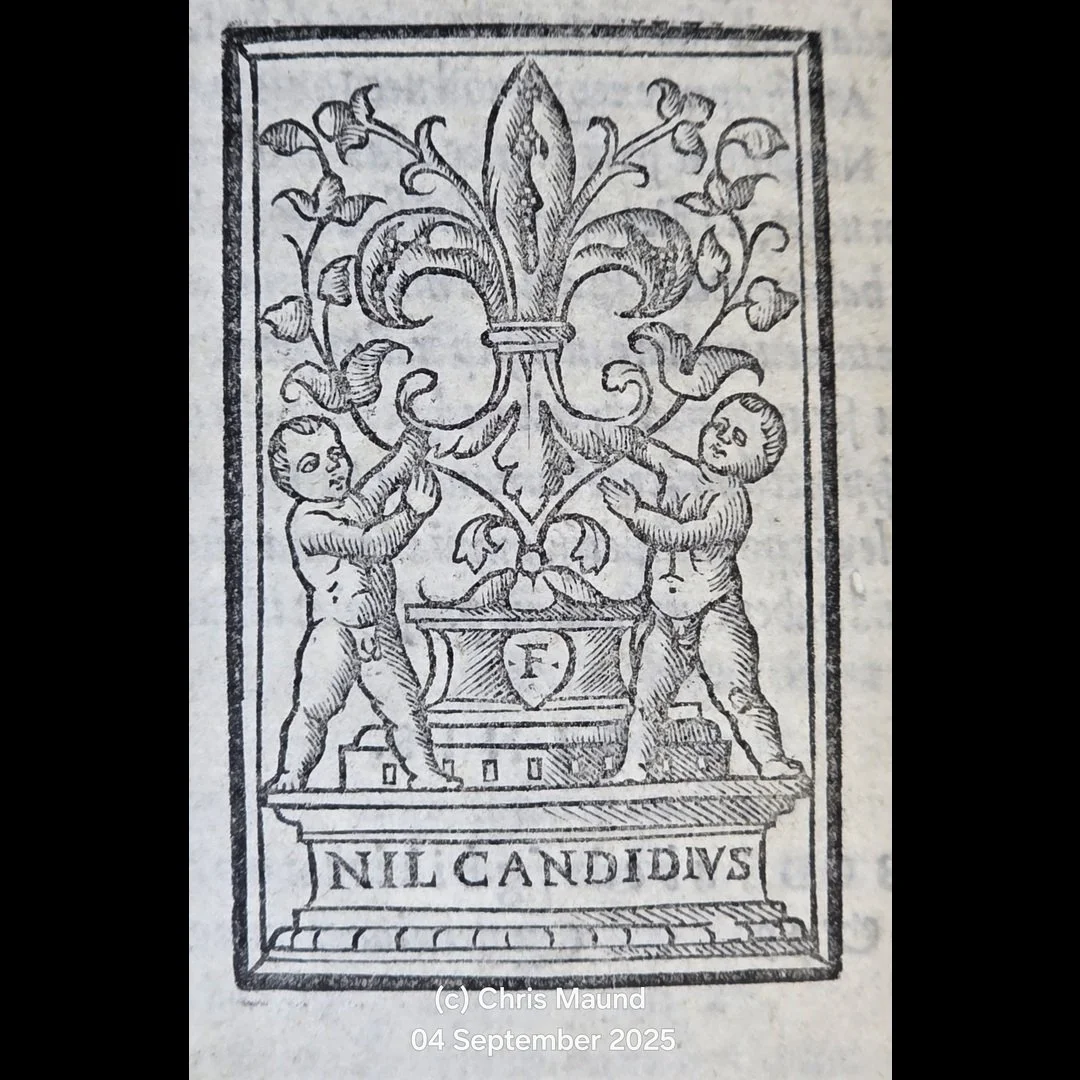
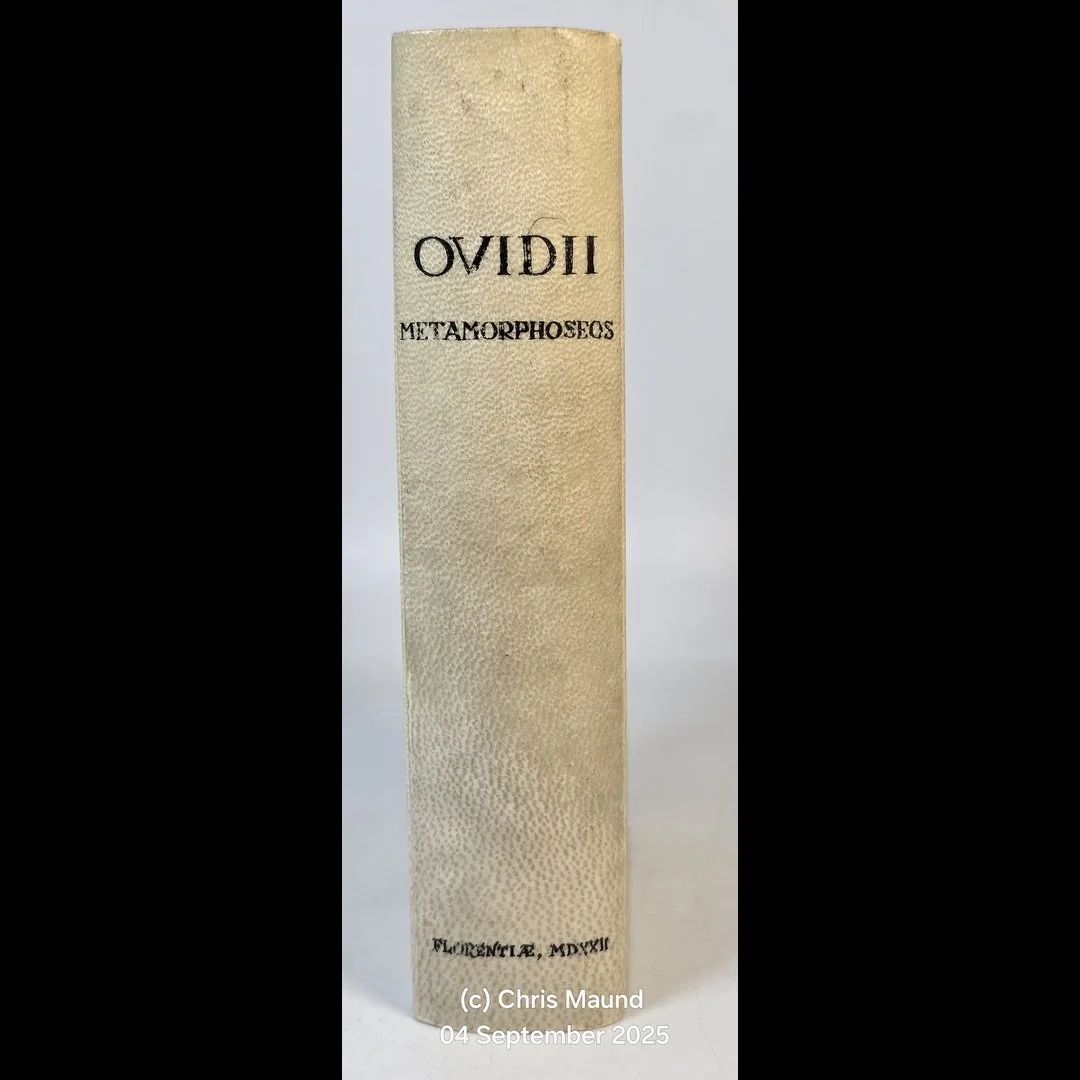
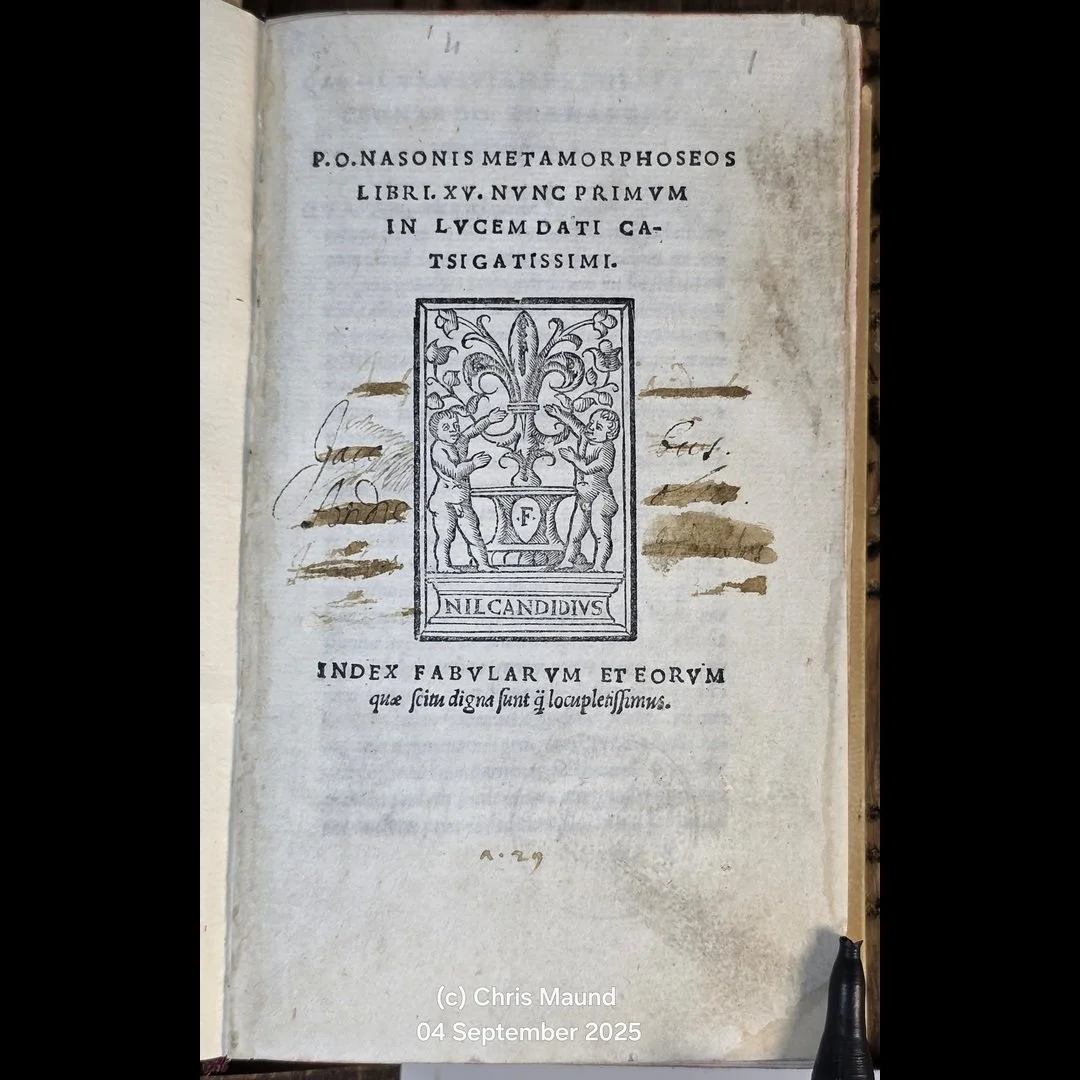
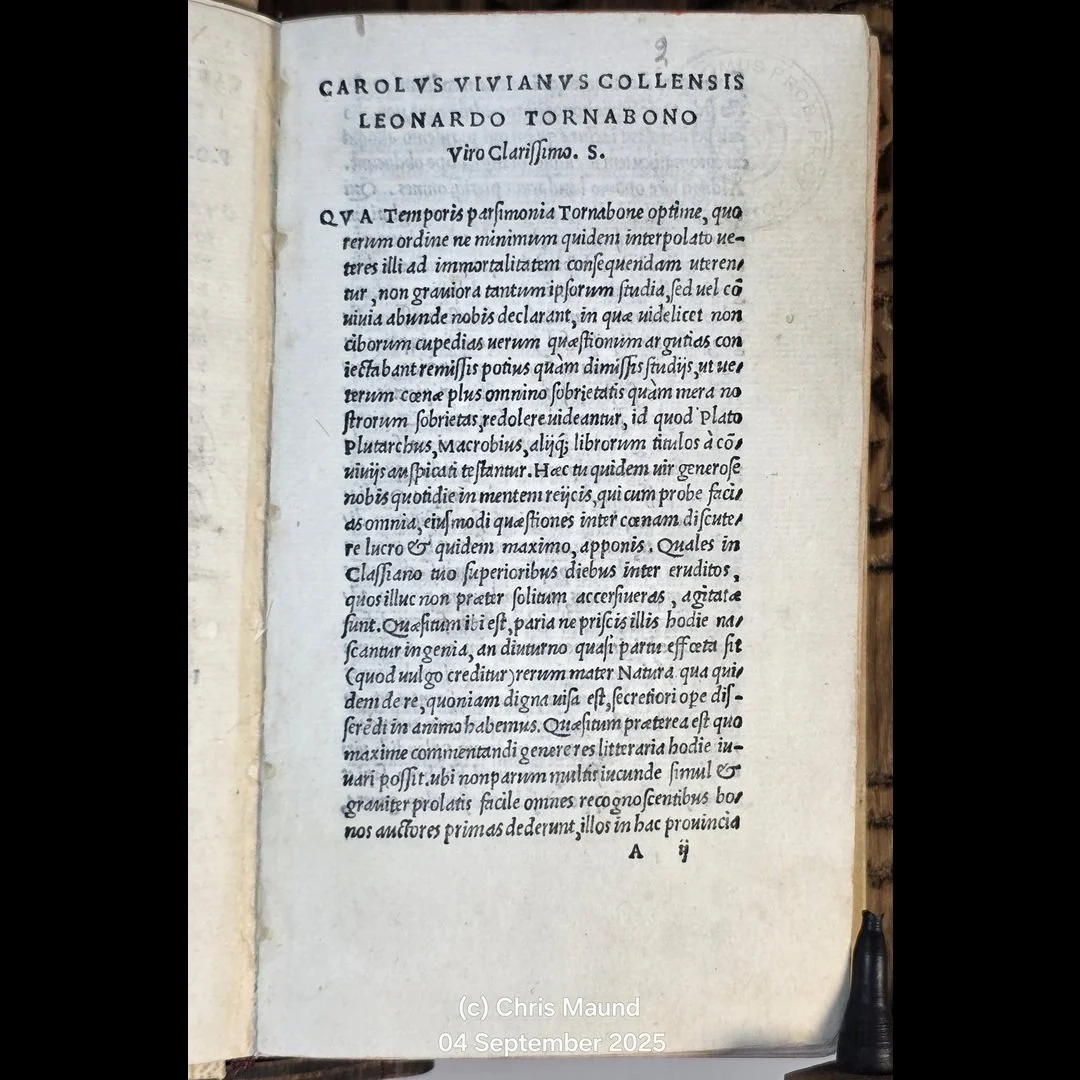
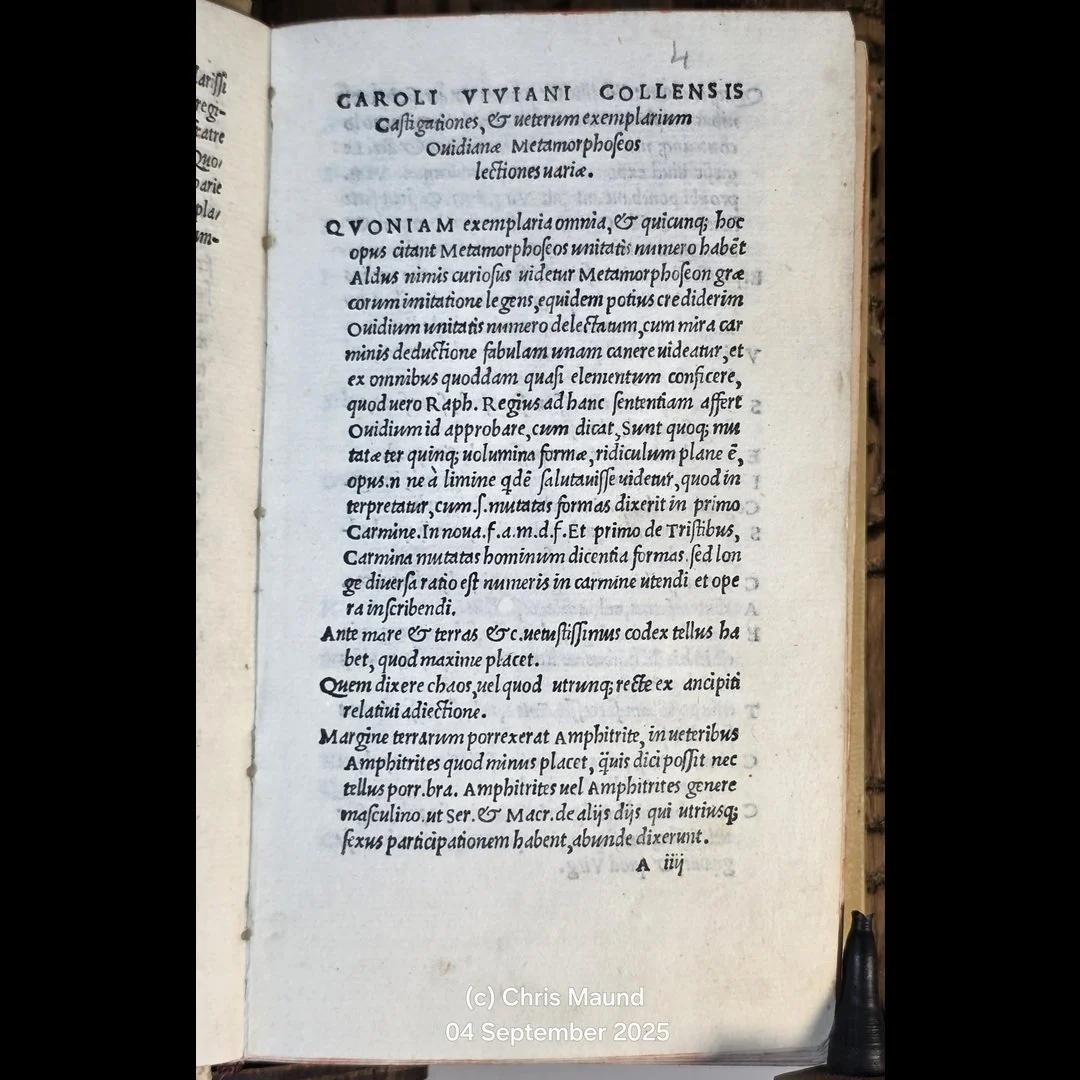
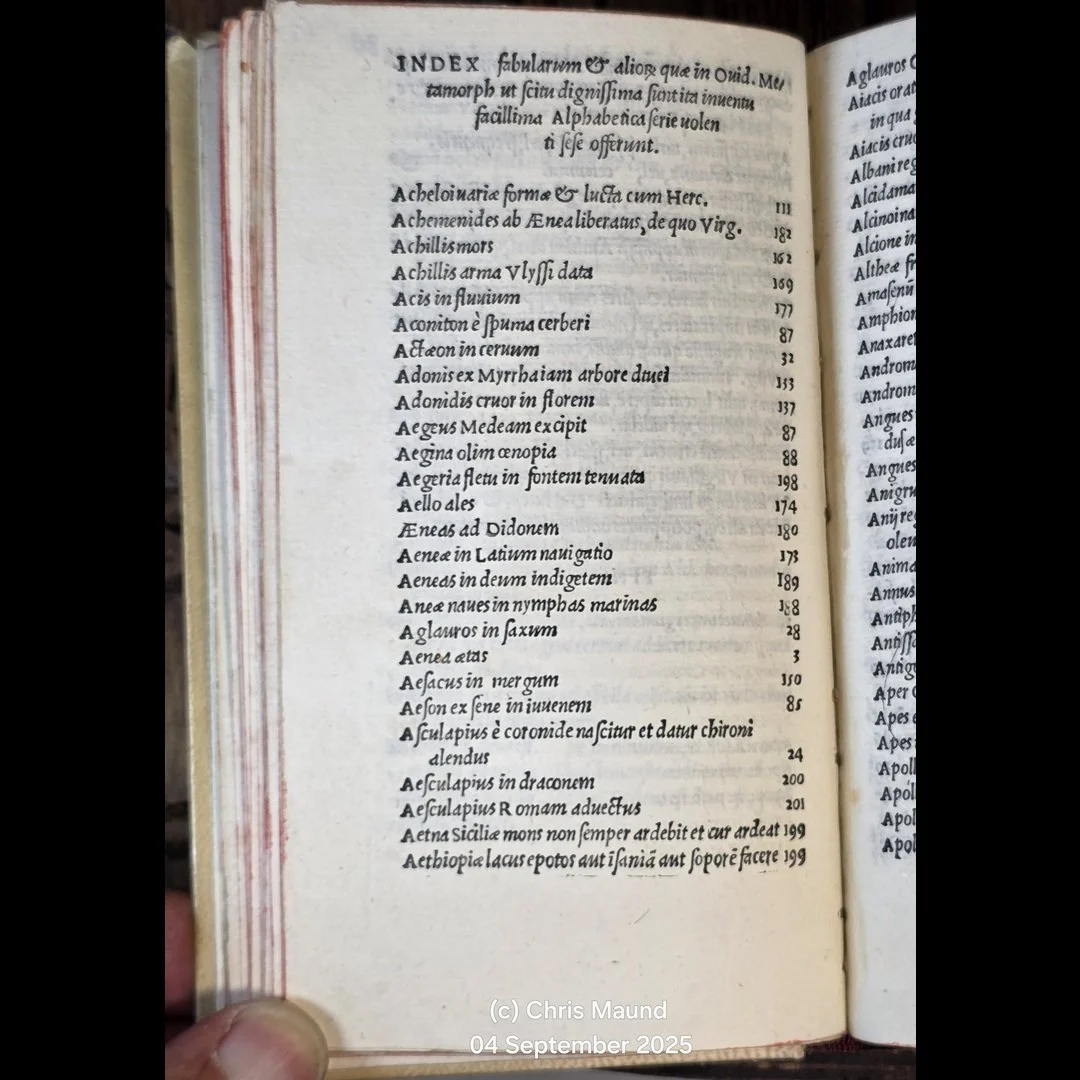
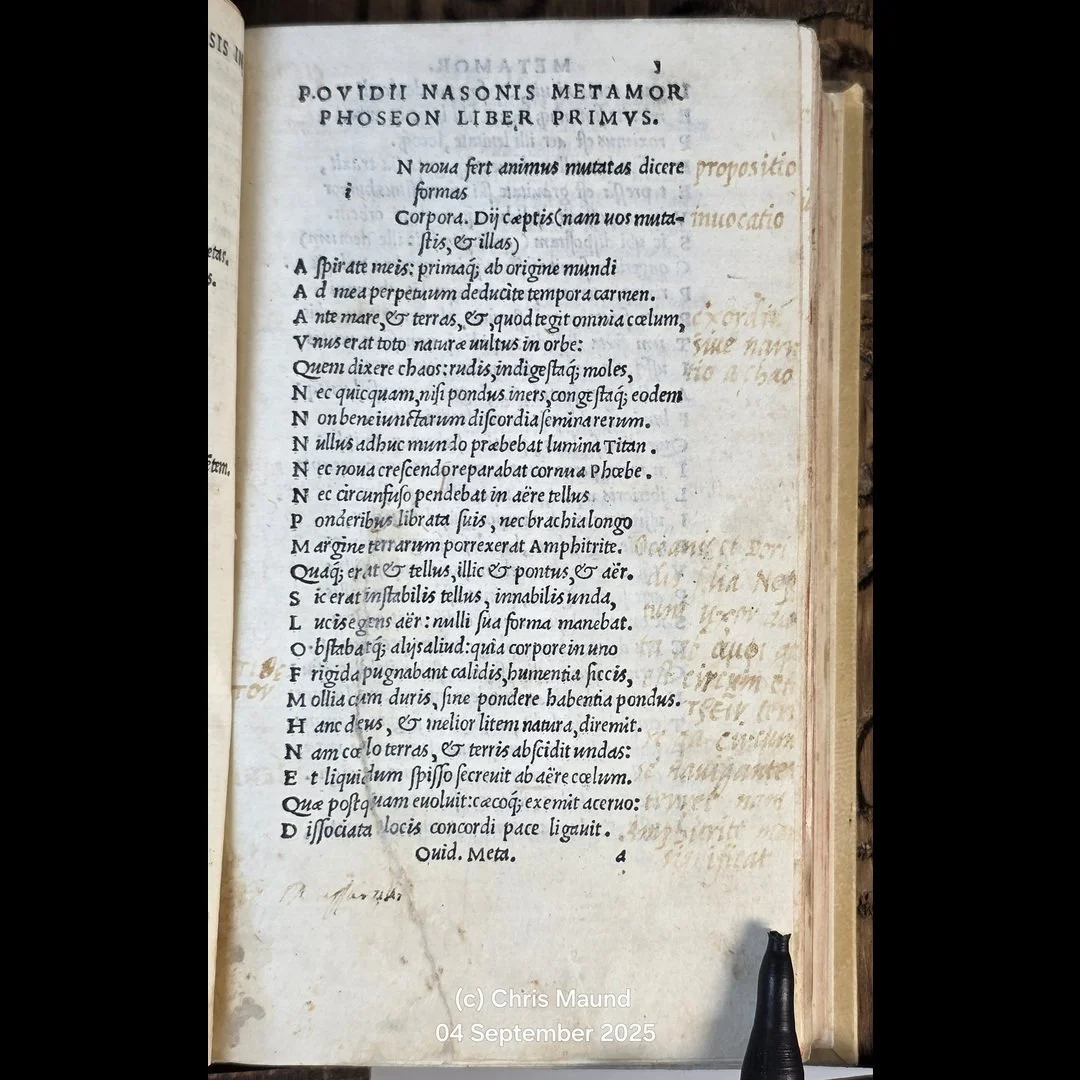
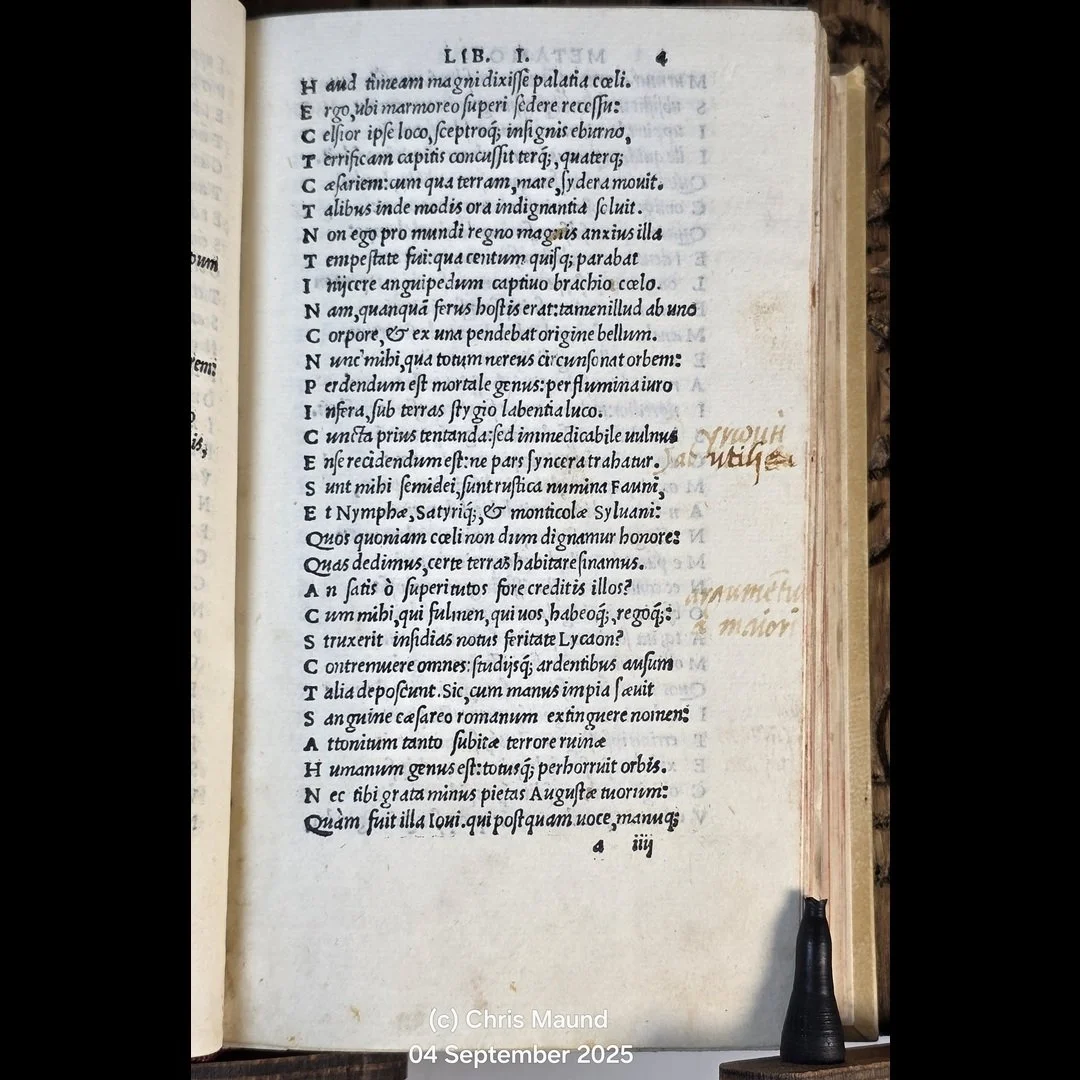
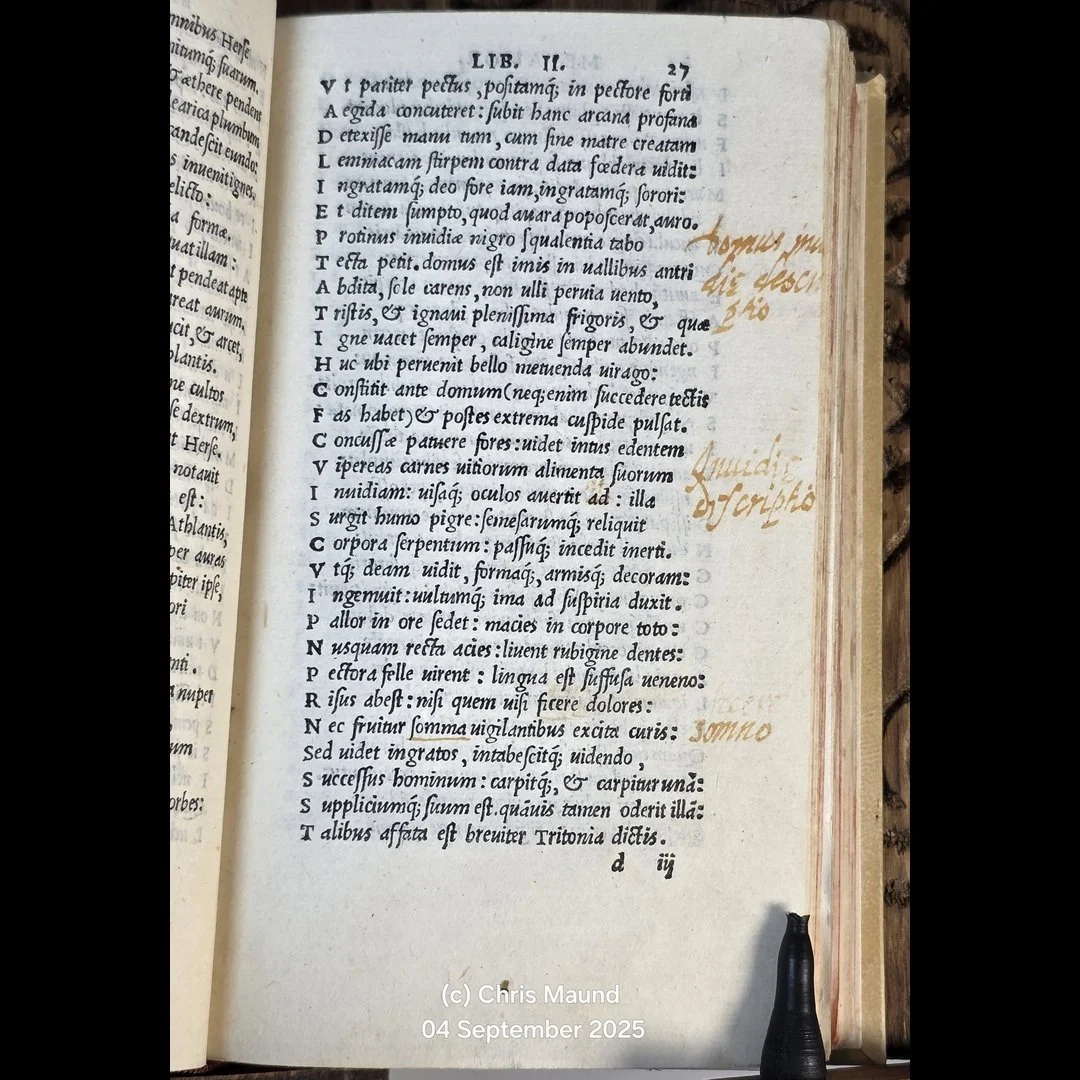
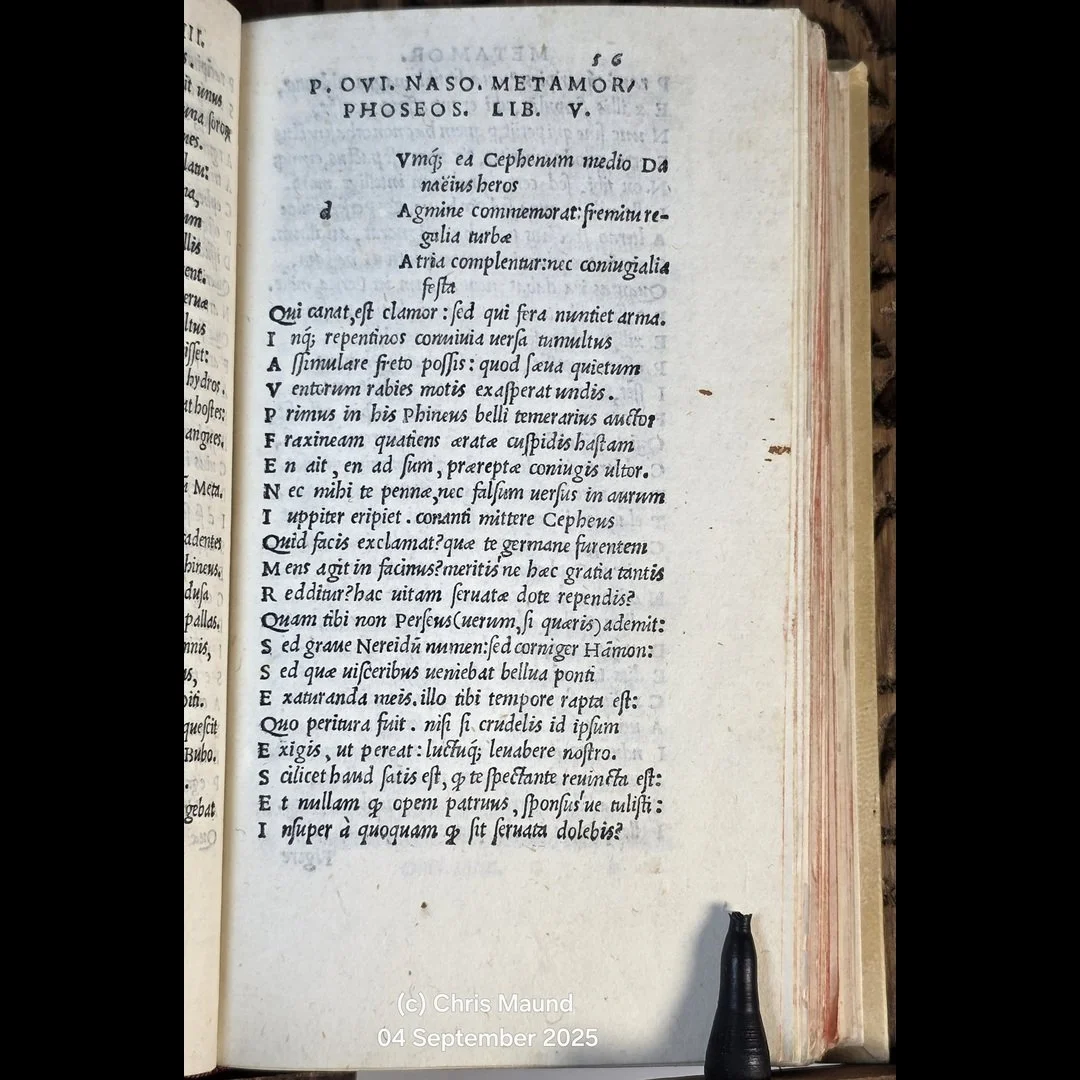
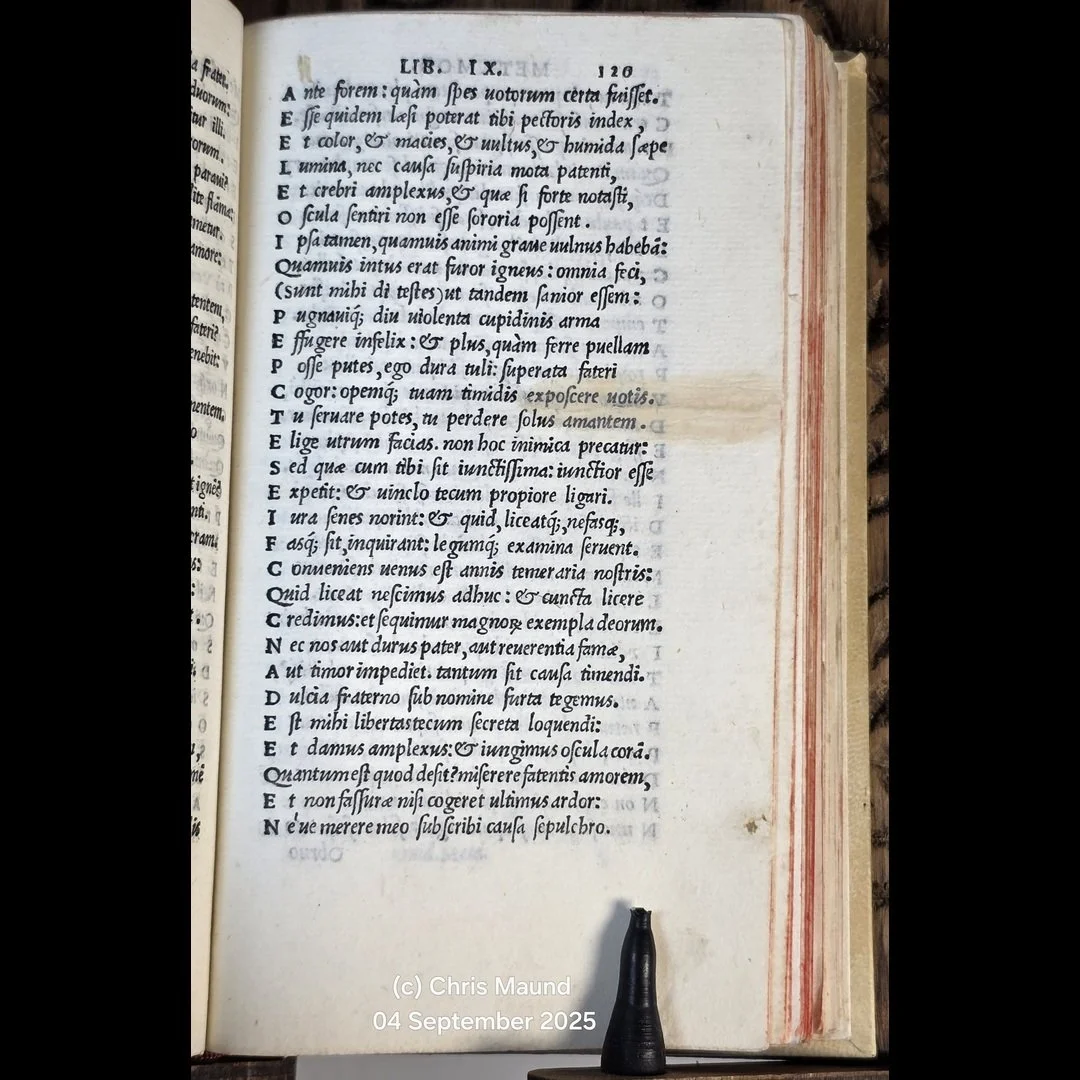
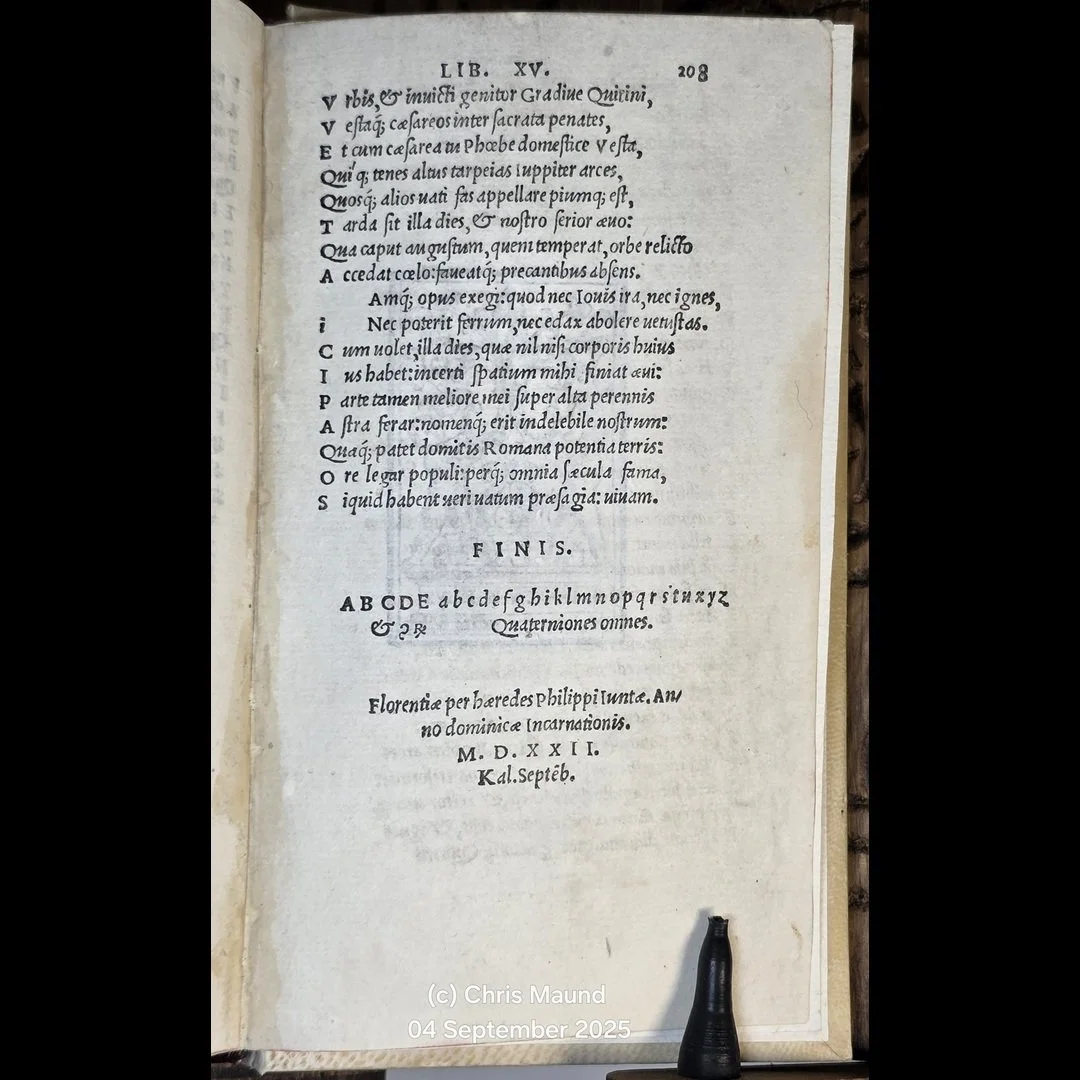
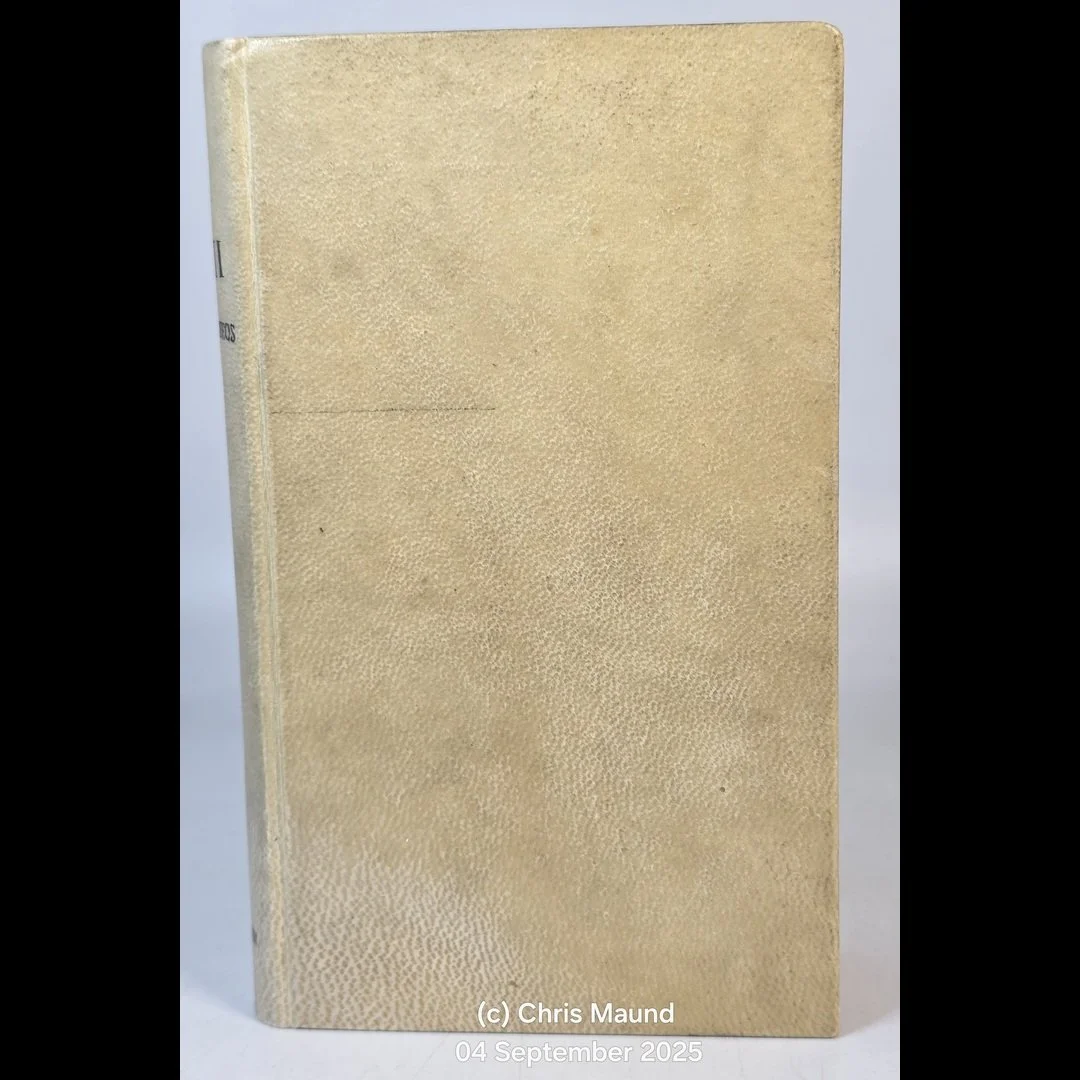

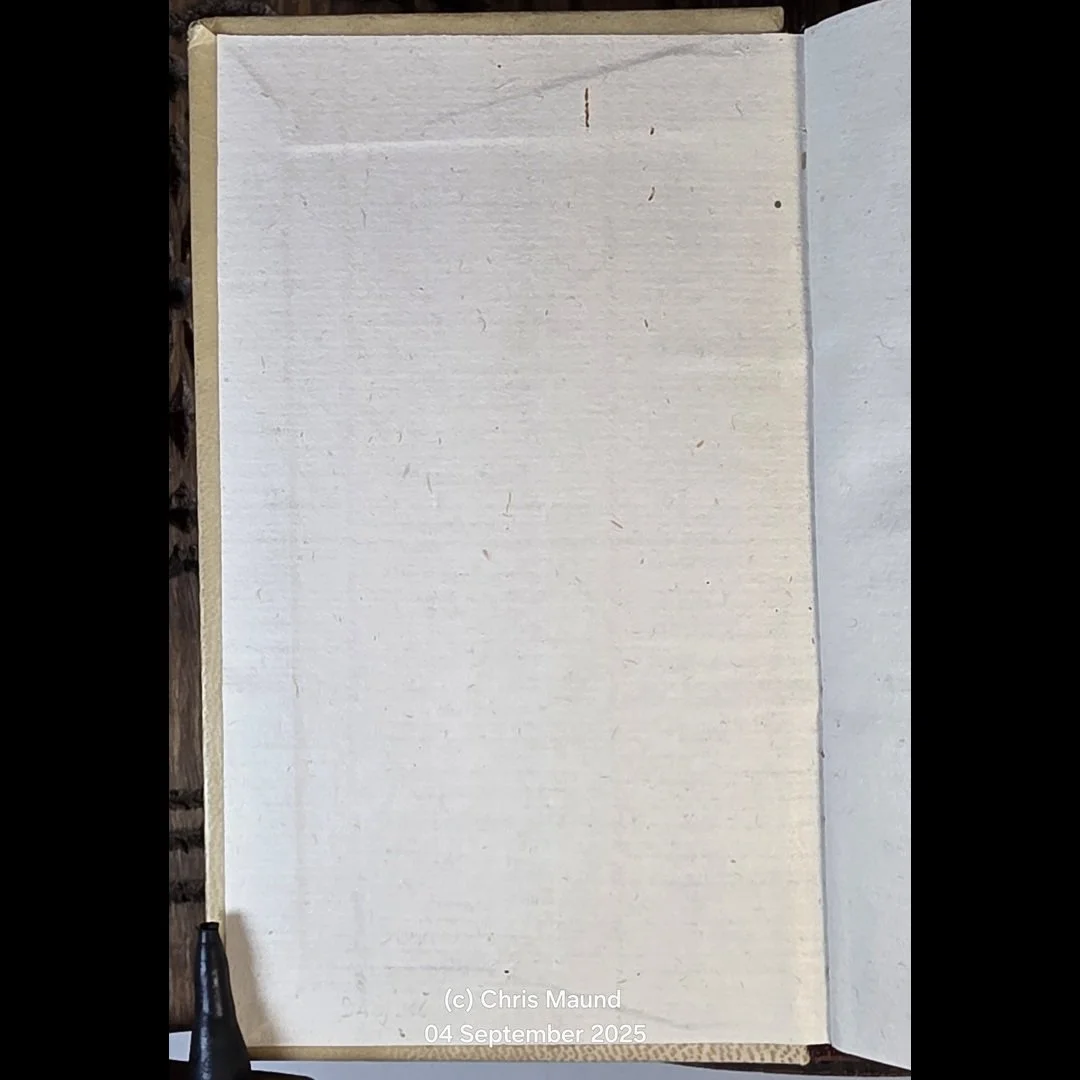
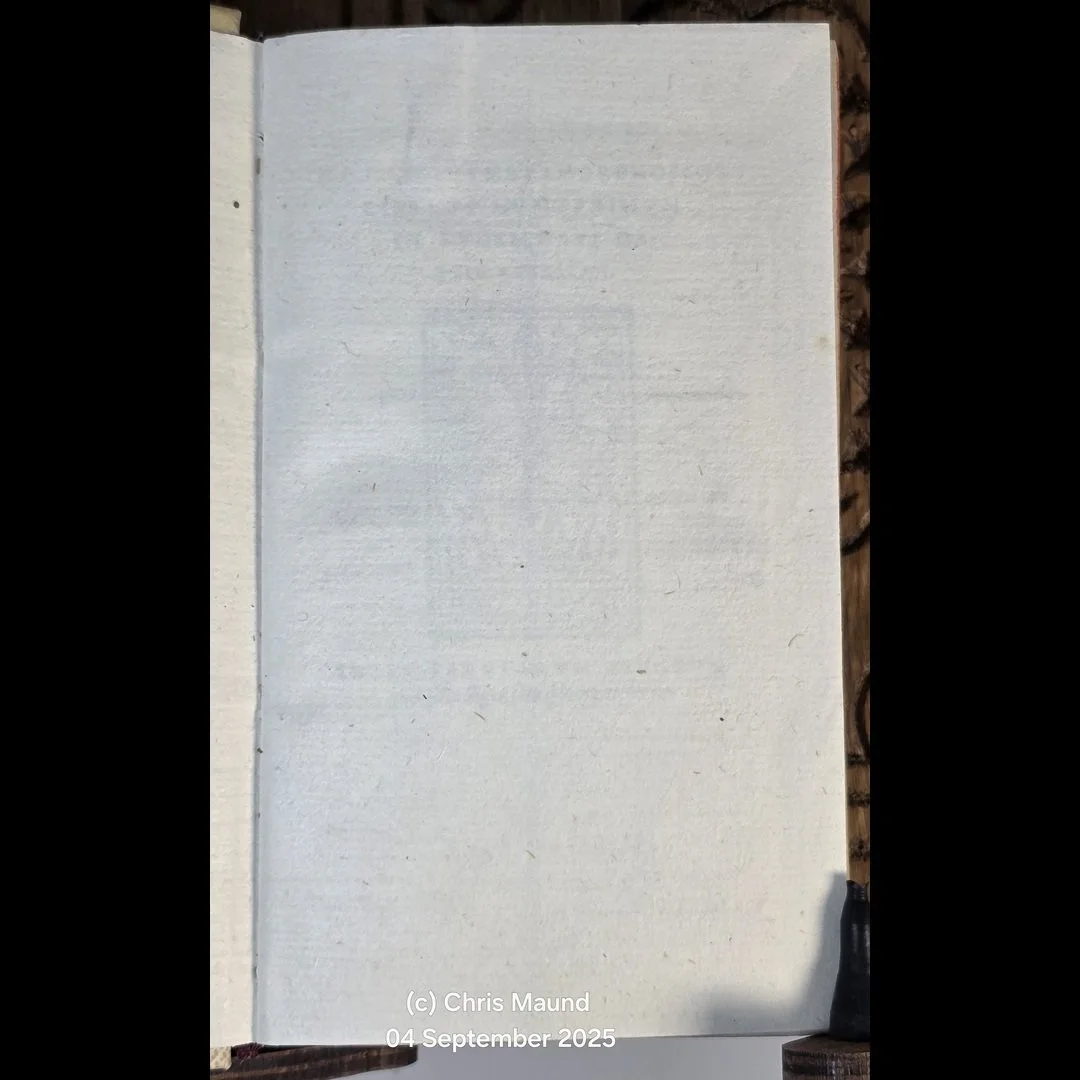
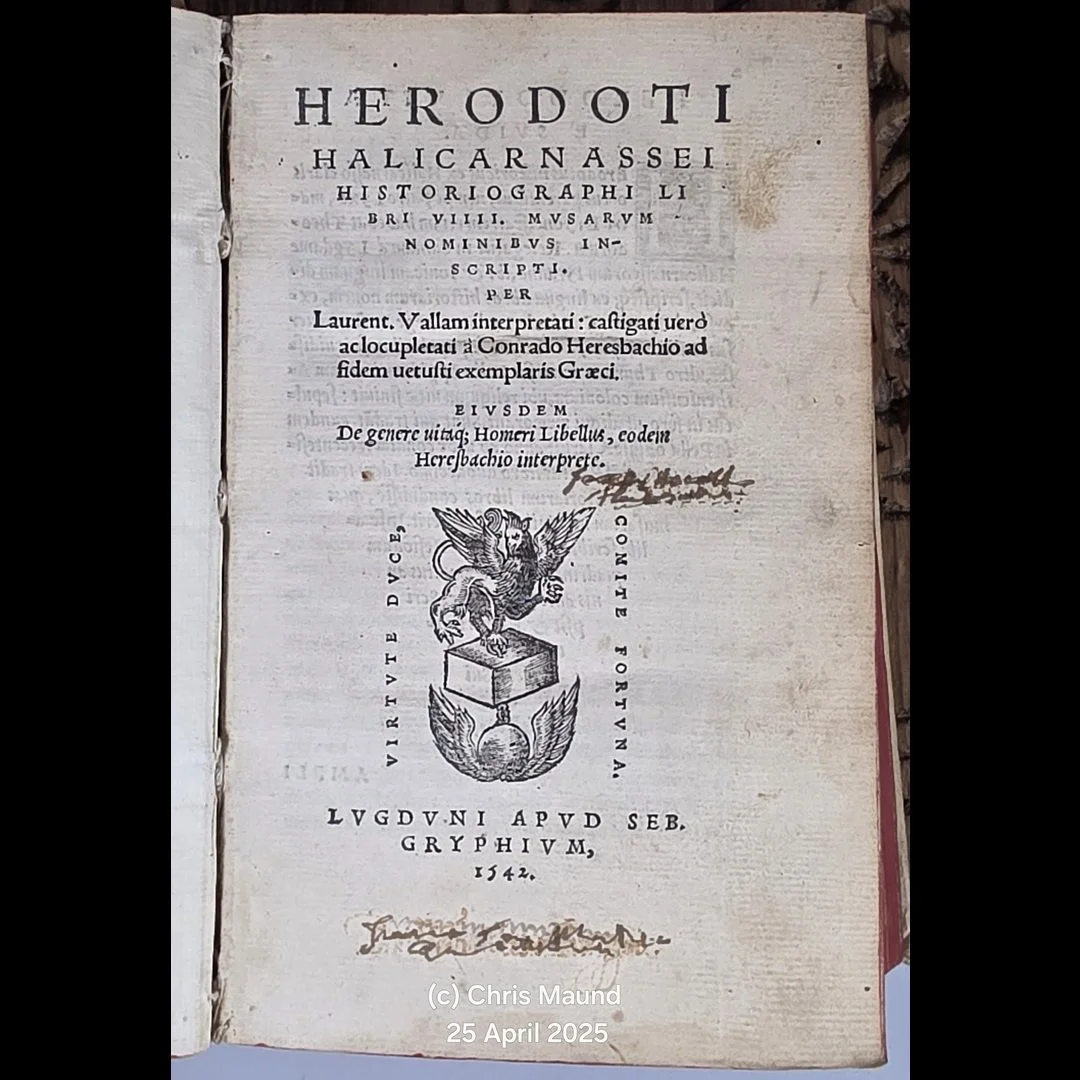





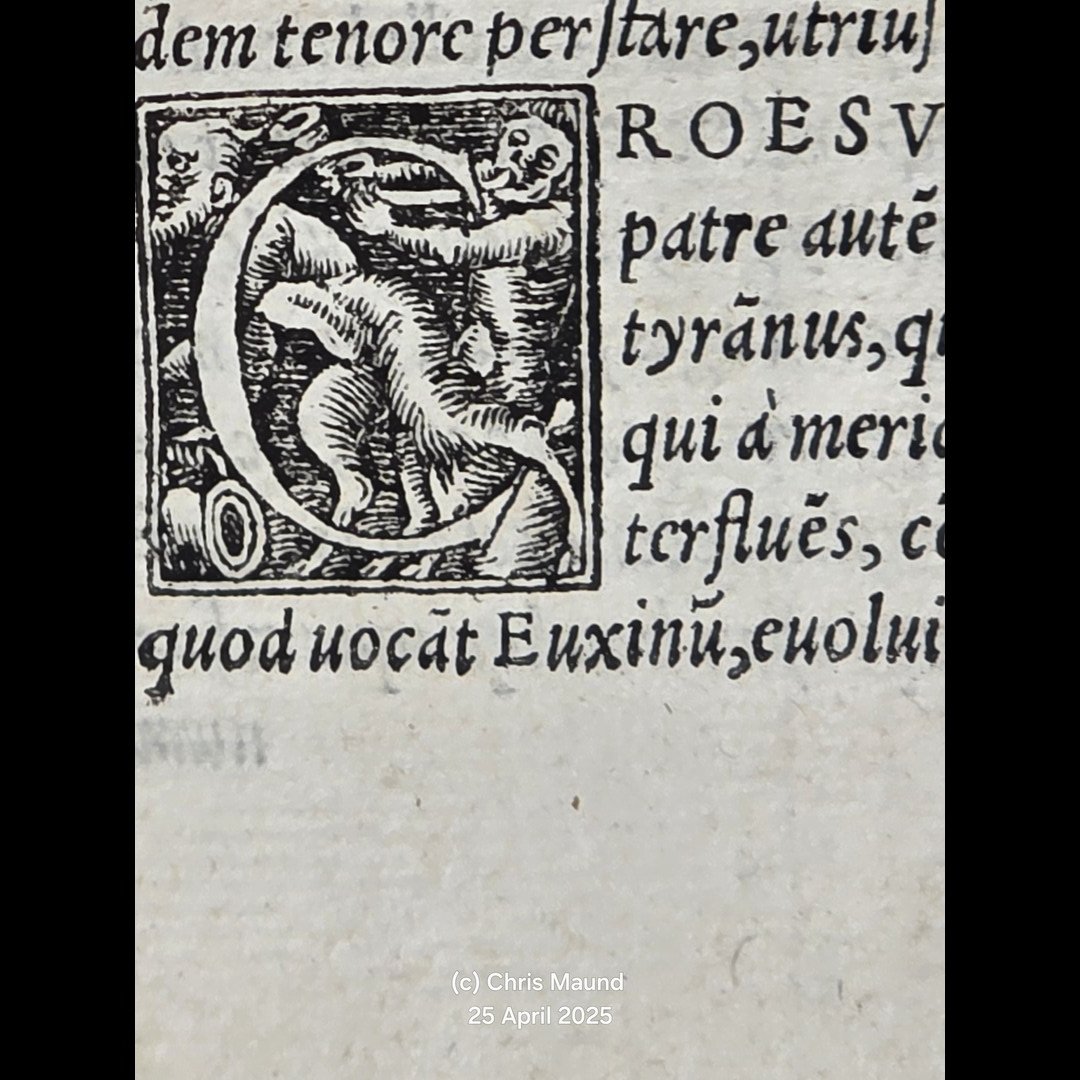











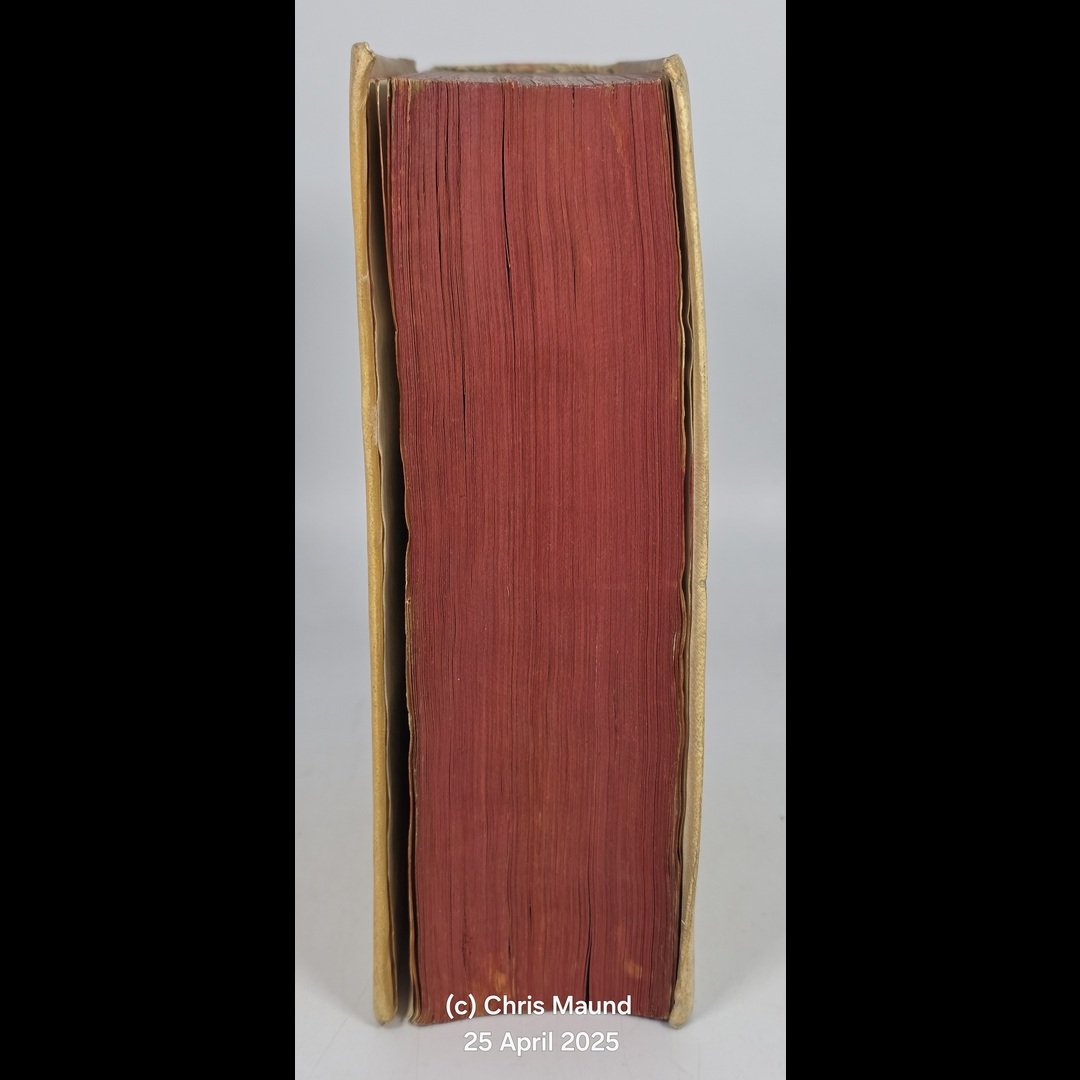

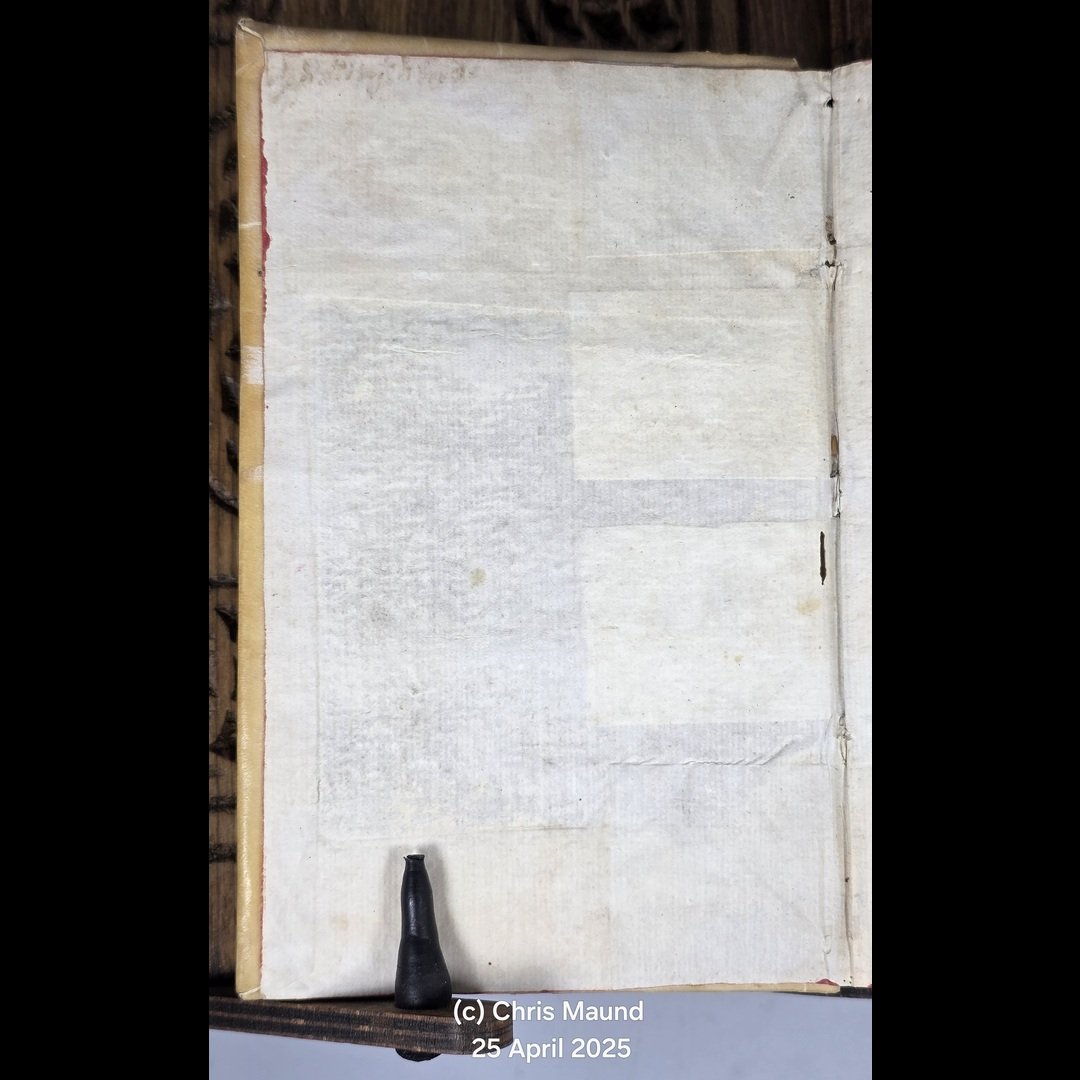

![1633 1st Edtn A. GISLENII BUSBEQUII OMNIA QUAE EXTANT [TURKISH HISTORY] By Ogier Ghiselin de Busbecq Very Good History](https://images.squarespace-cdn.com/content/v1/634dab4938c13d5c1f88d382/1704584800712-SP1UVY6RR352V6QKUOIW/20240106_222350-3.jpg)













